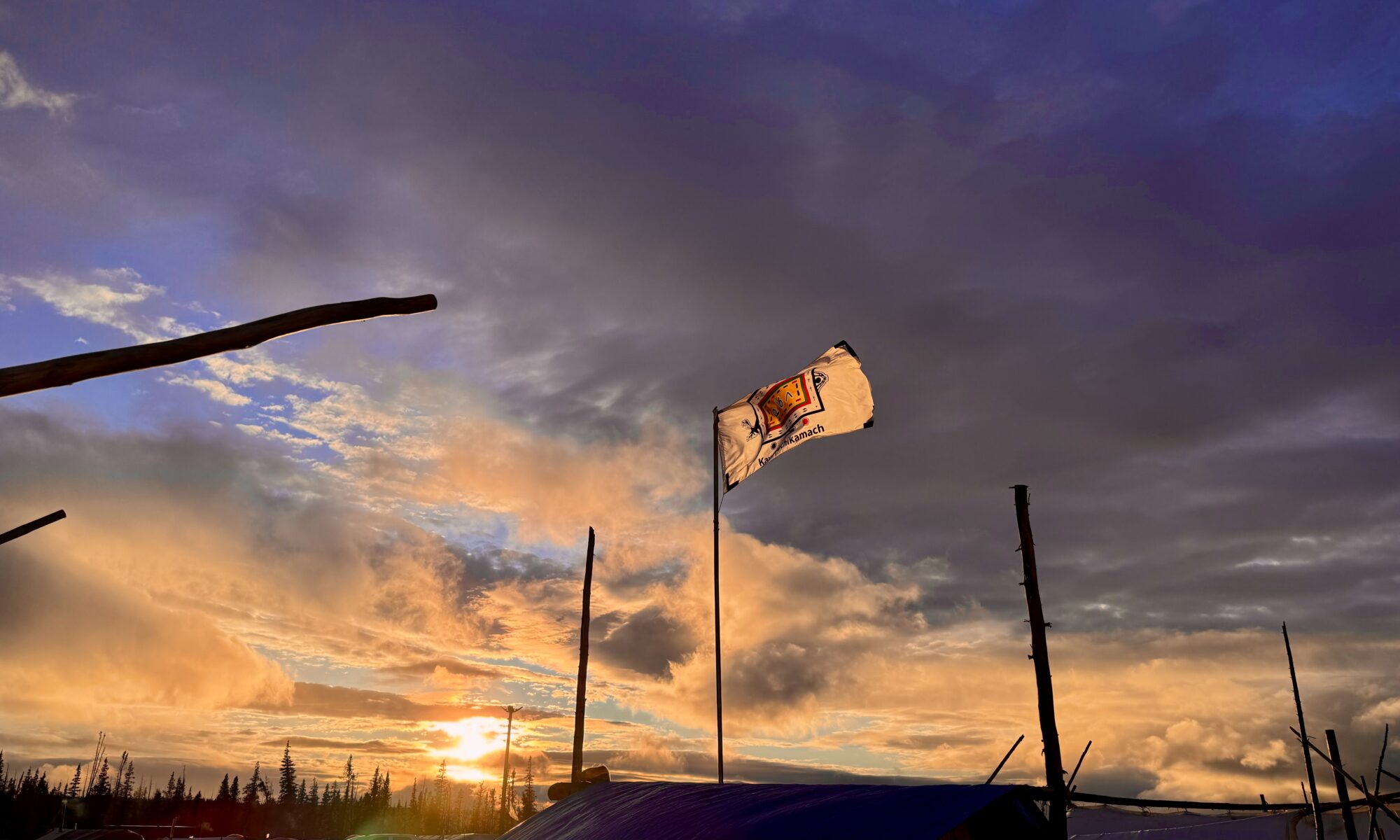Sun, Sep 1
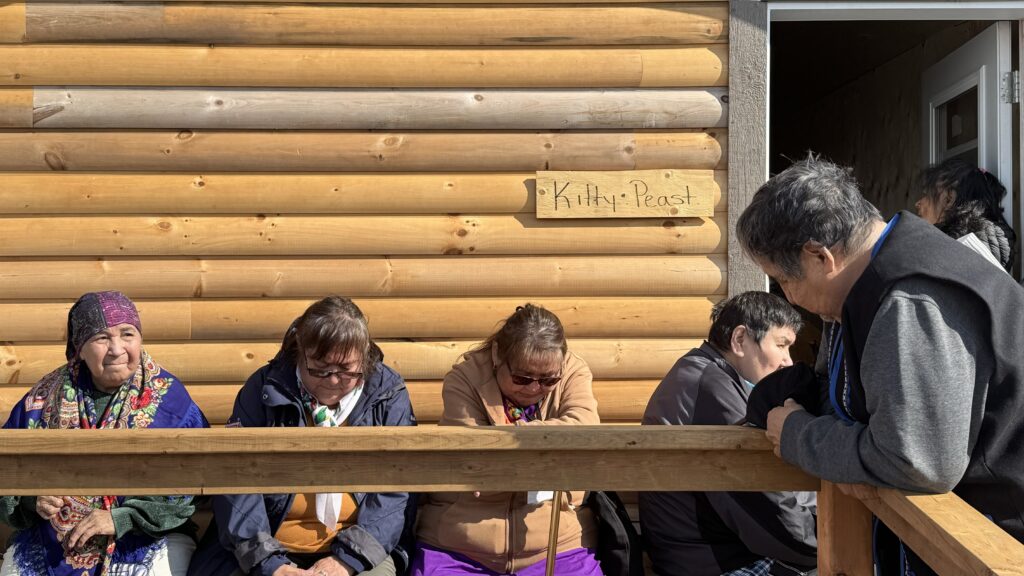
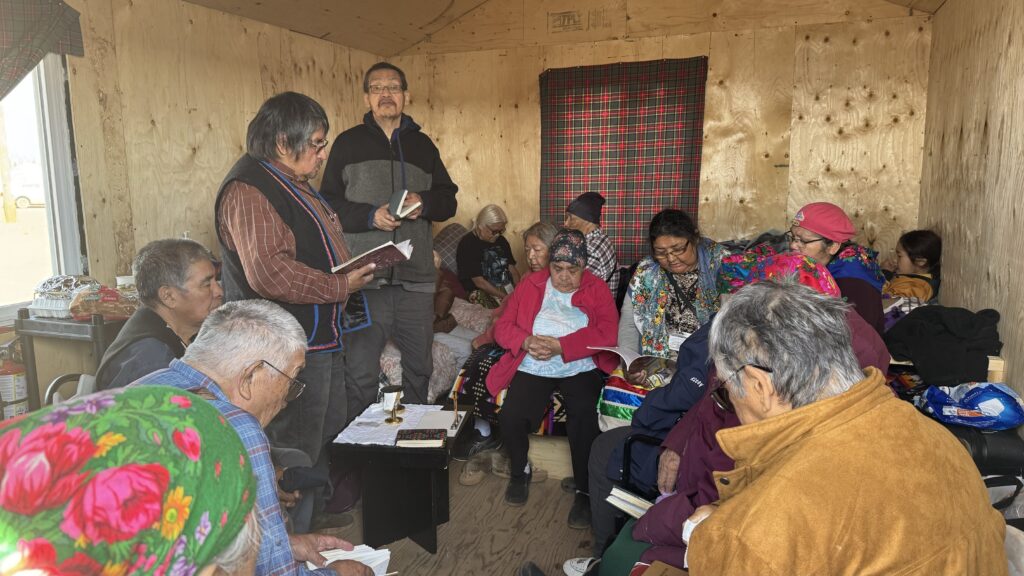
This morning, I was greeted by an unusual sight. Many Naskapi people were crowded into Kitty Peastitute’s cabin, having a church service, while the big tent sat mostly empty. Some kind of disagreement had happened, and instead of a unified service, there were two separate ones.
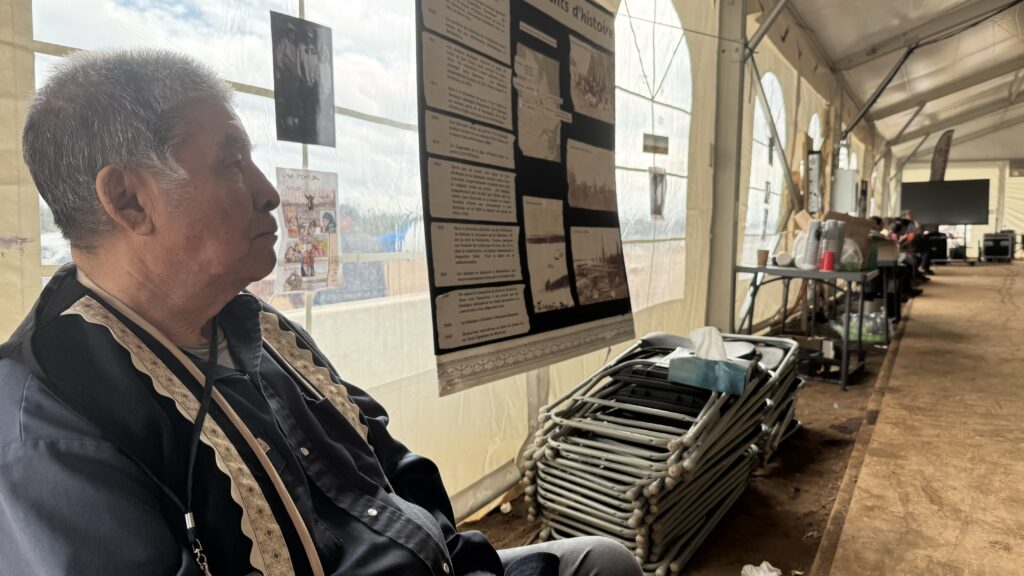
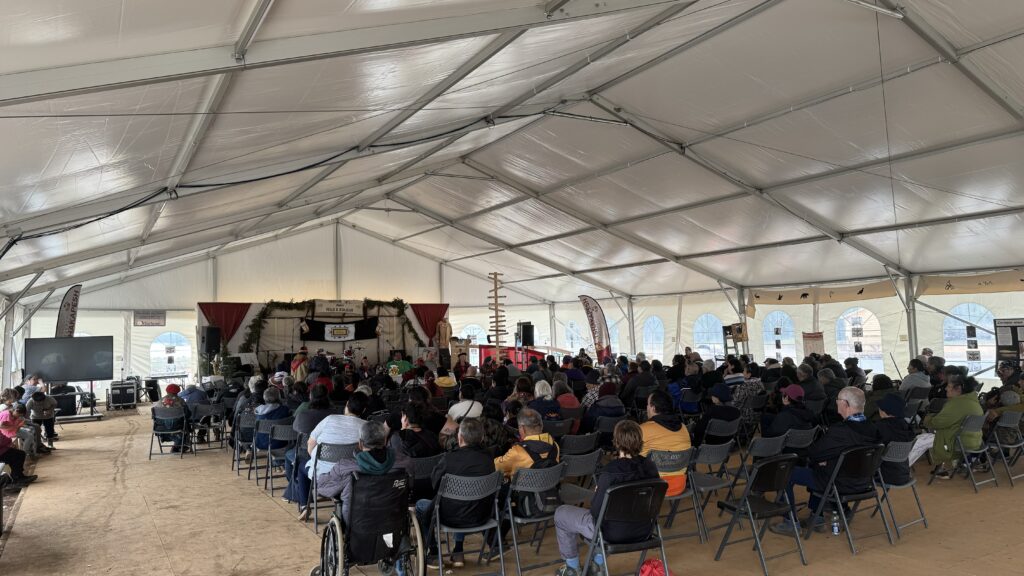
Since the services were held an hour apart, many Naskapi people simply attended both. It was an interesting way to handle the split, and it worked.
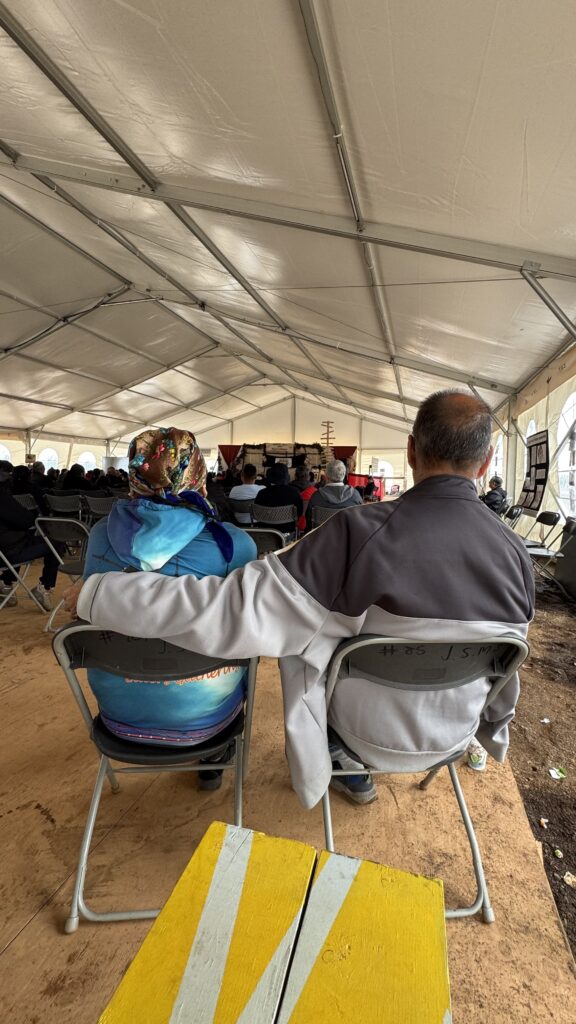
The Innu service had some beautiful singing, and at one point, I saw a husband comforting his wife as she began to cry from the emotion of the music.
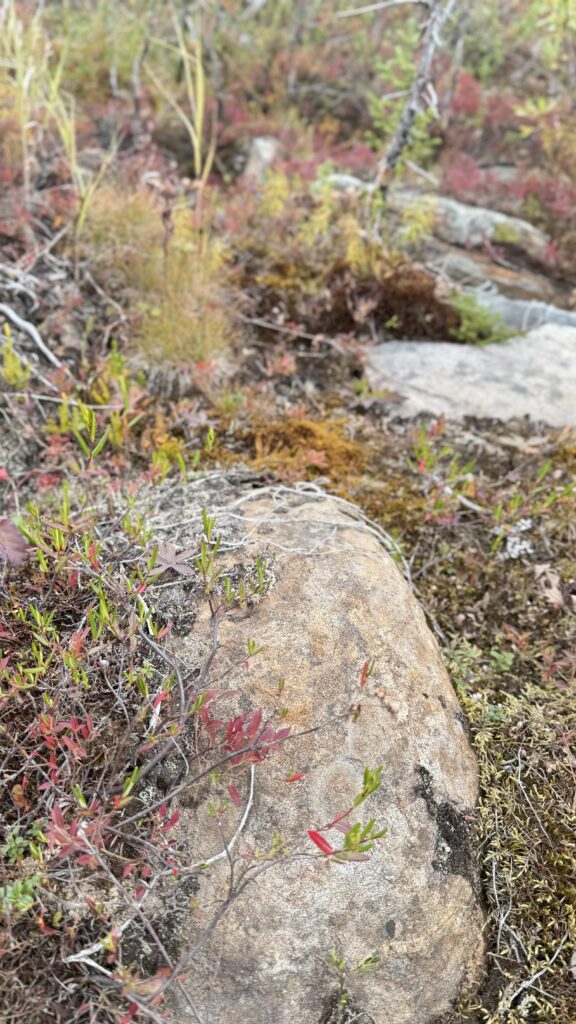
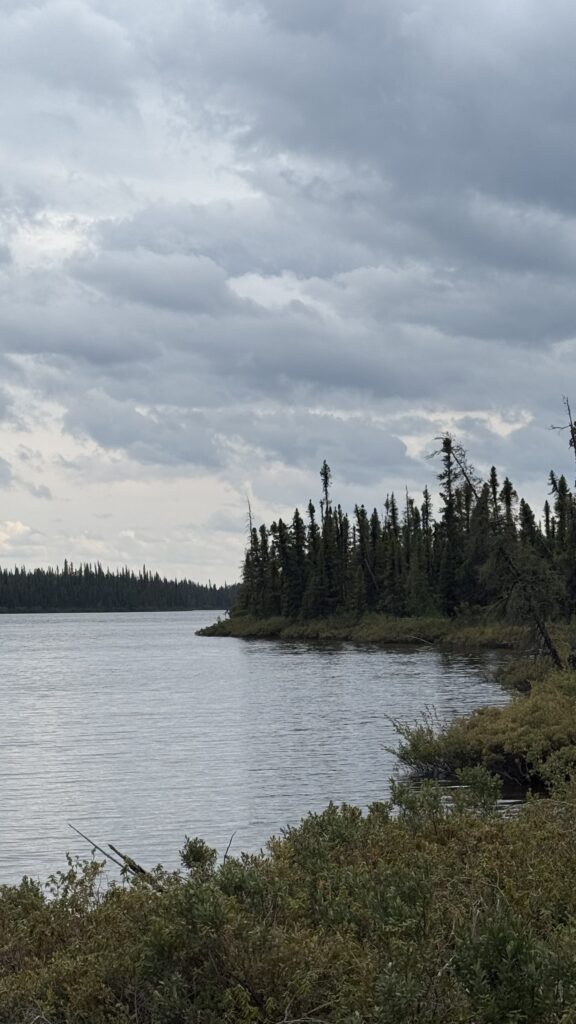
After attending both services, I went out into the woods for my own church. I thought about forest fires and rebirth, how even the rockiest, stoniest terrain can eventually transform into a beautiful paradise with care and love. It was a quiet, thoughtful moment in the midst of all the activity.
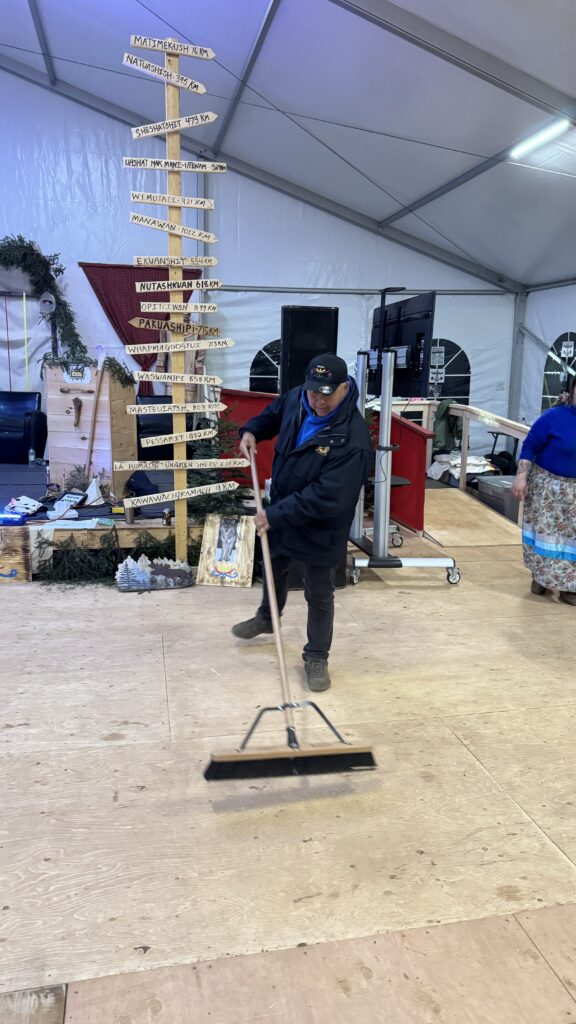
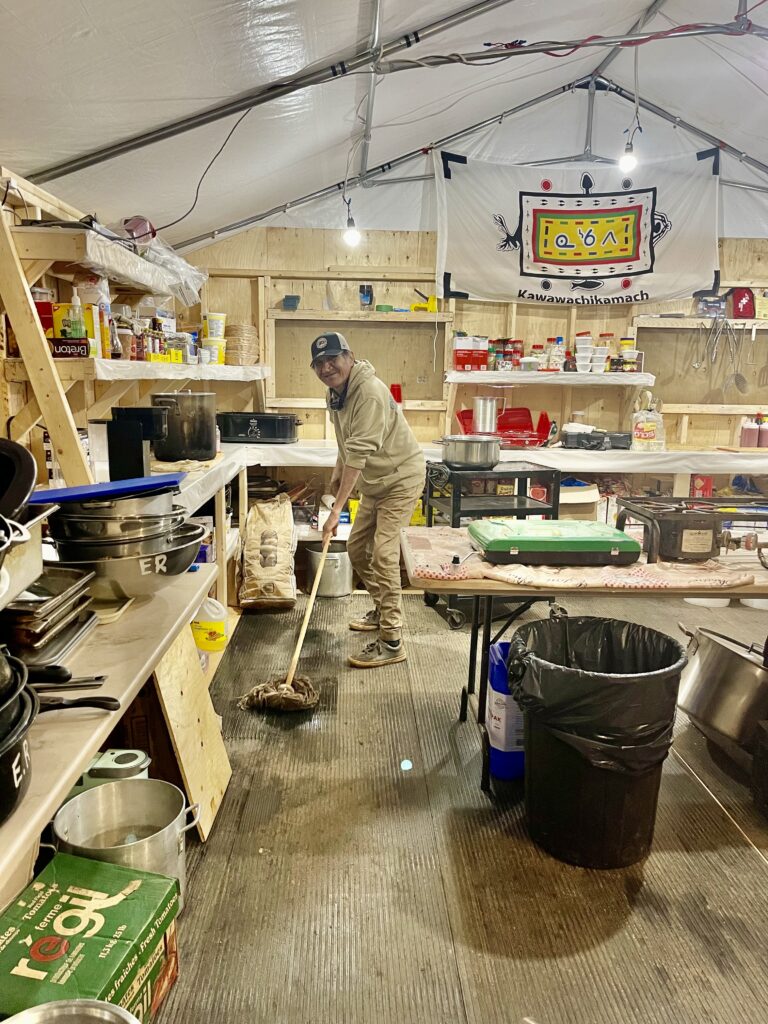

There are so many people working behind the scenes at the Elders Gathering—cooking food for the workers, hauling trash, emptying toilets, sweeping floors, and delivering water. Some of them feel embarrassed about their roles, thinking they are less desirable, but in reality, they are the true heroes of this gathering. Their efforts keep everything running smoothly, and their contributions are invaluable.
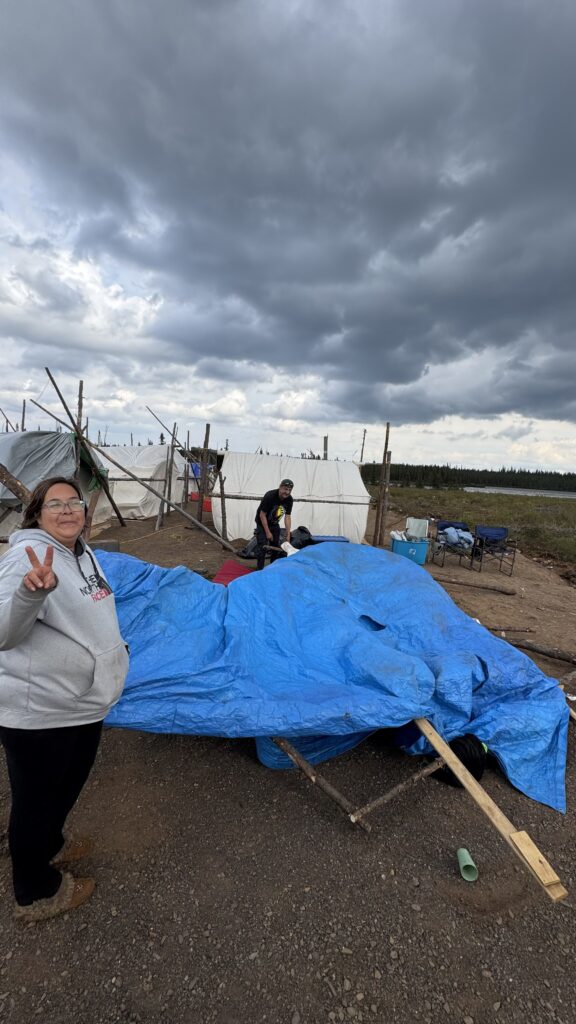
The wind really picked up today, and it wasn’t long before one of the first tents set up on the site was lifted into the air and smashed onto another tent. I helped untangle it, and the owners took it in stride, joking, “That’s why the elders tell us to put the door facing east!” (Away from the prevailing winds).
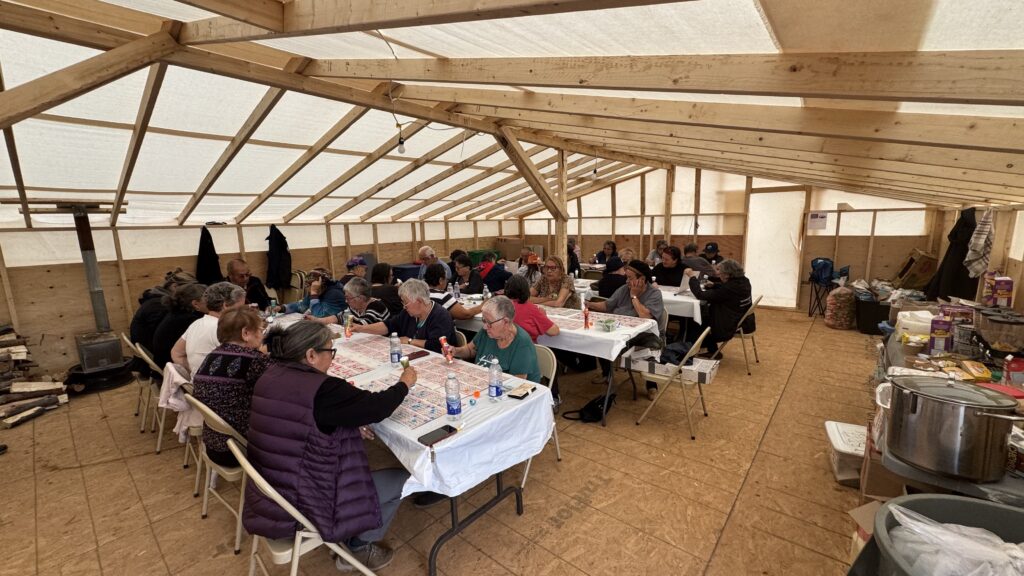
I visited another kitchen tent today, a low-built one belonging to the Innu Takuaikan Uashat mak Mani-utenam. It was a beautiful structure, filled with elders playing bingo, joking around, and sipping on tea and coffee.
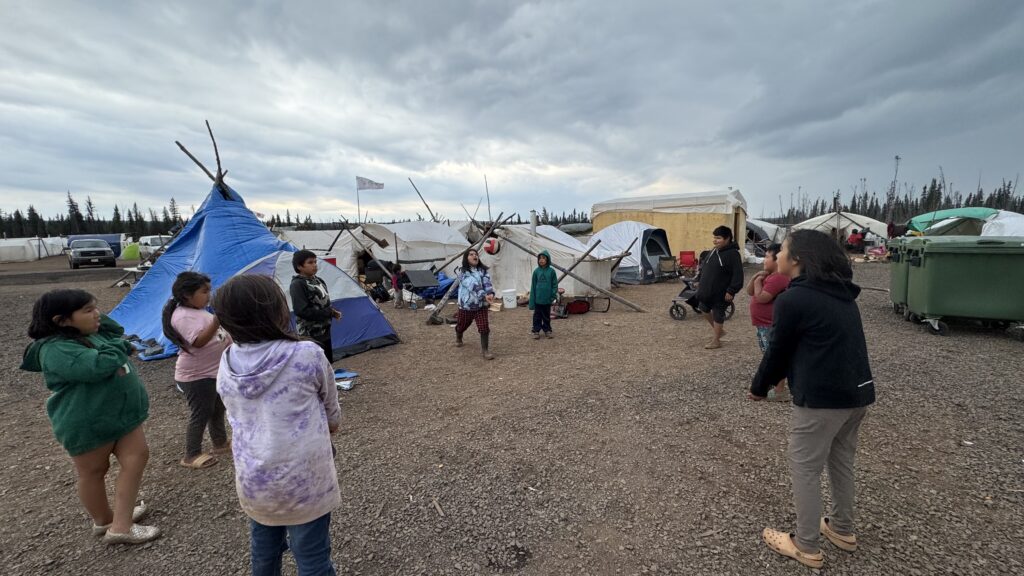
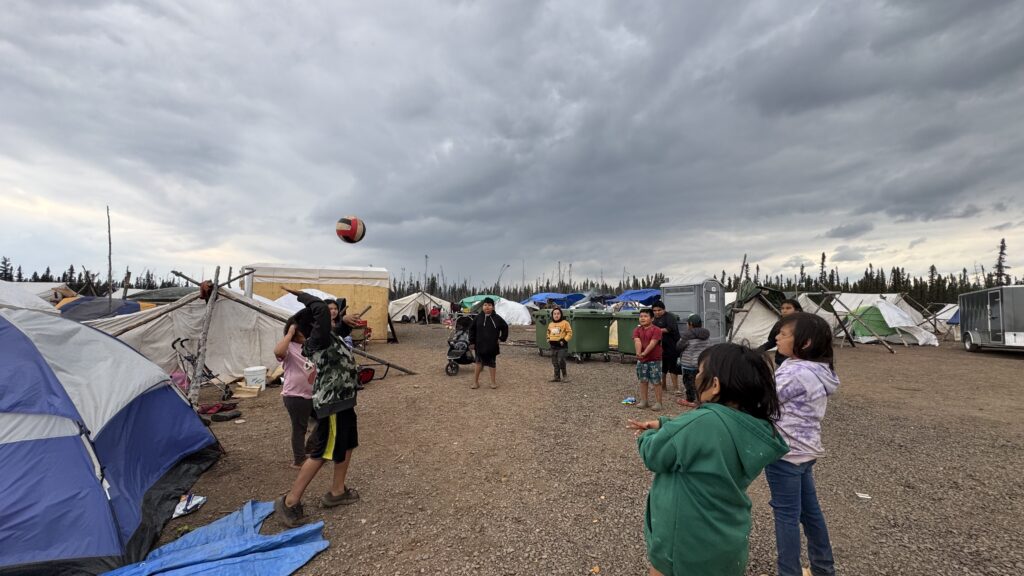
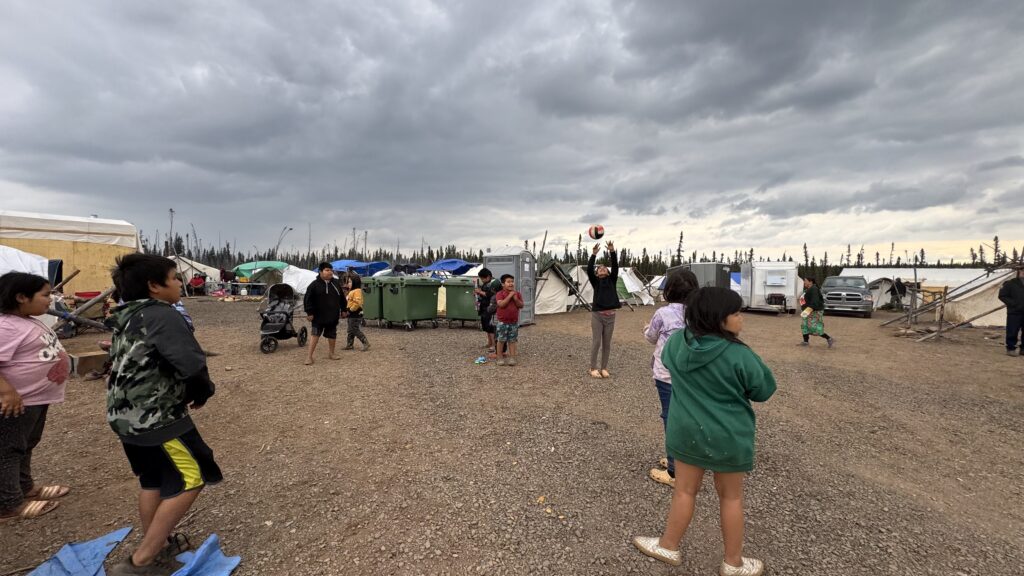
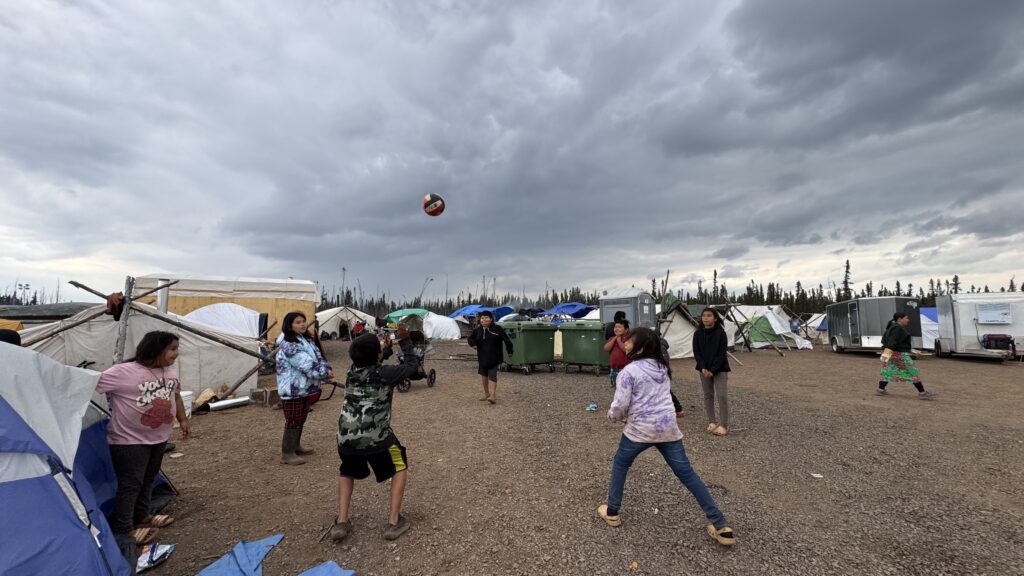
Even though storms were on the horizon, the kids didn’t let it dampen their fun. From different villages, they set up a volleyball circle between the Natuashish and Naskapi Nation sections of the camp.
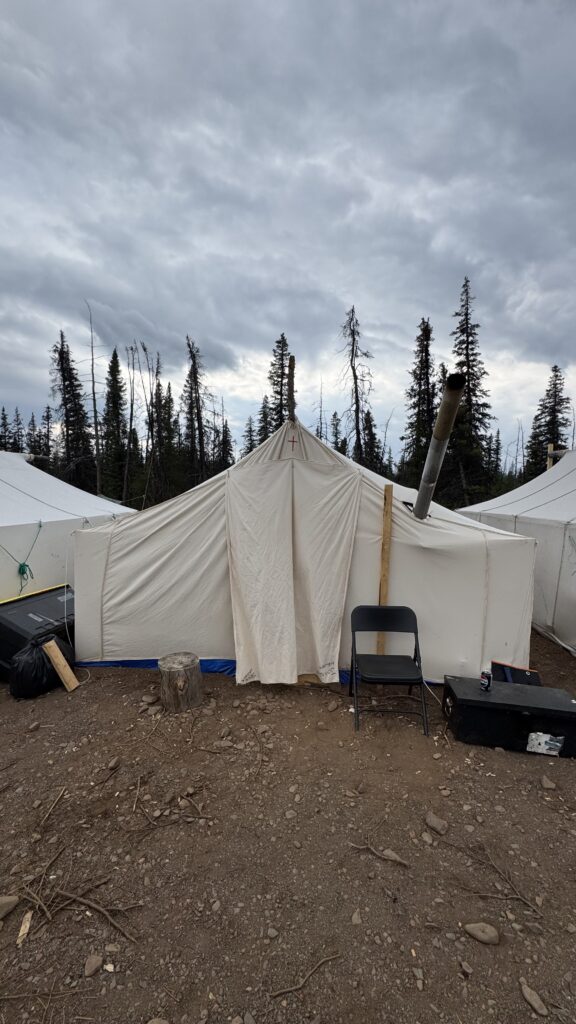
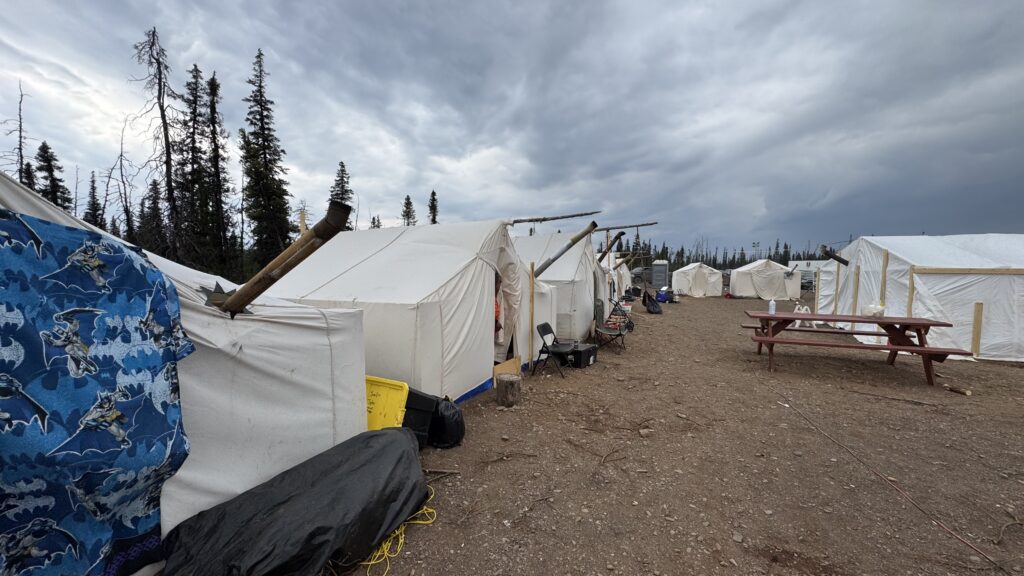
I love seeing the different nations come together and interact, and it’s fascinating how each community builds their tents slightly differently. The Natuashish people put crosses on their tents, like Naskapi homes, and many Sheshatshiu people have stove pipes coming out the front of their tents rather than the top.
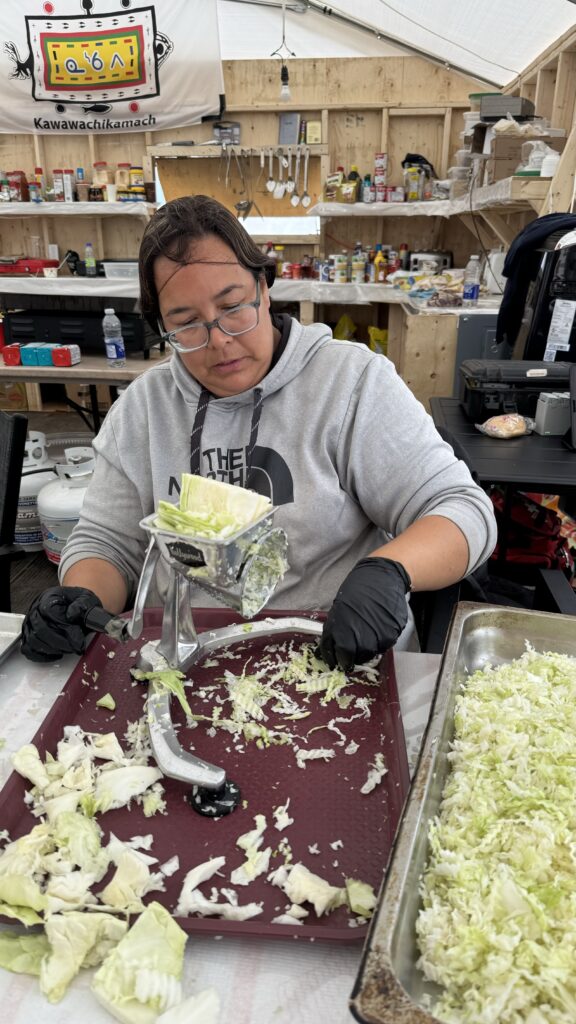
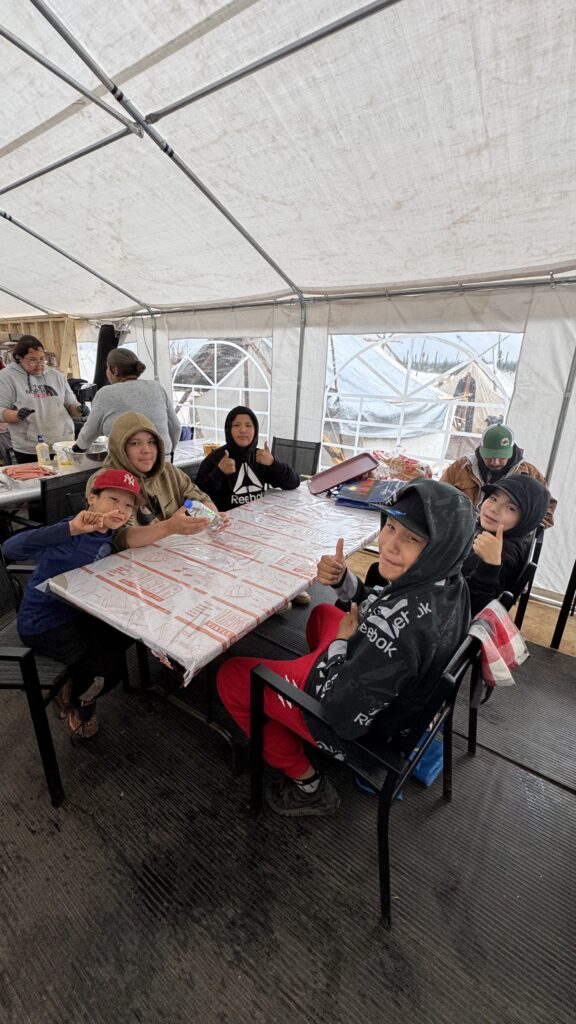
The heavy rains eventually came, drenching the campsite, but the kids just took shelter in the kitchen tents. Thanks to the amazing work of the Naskapi crews laying solid foundations, there was no flooding, and surprisingly little mud.
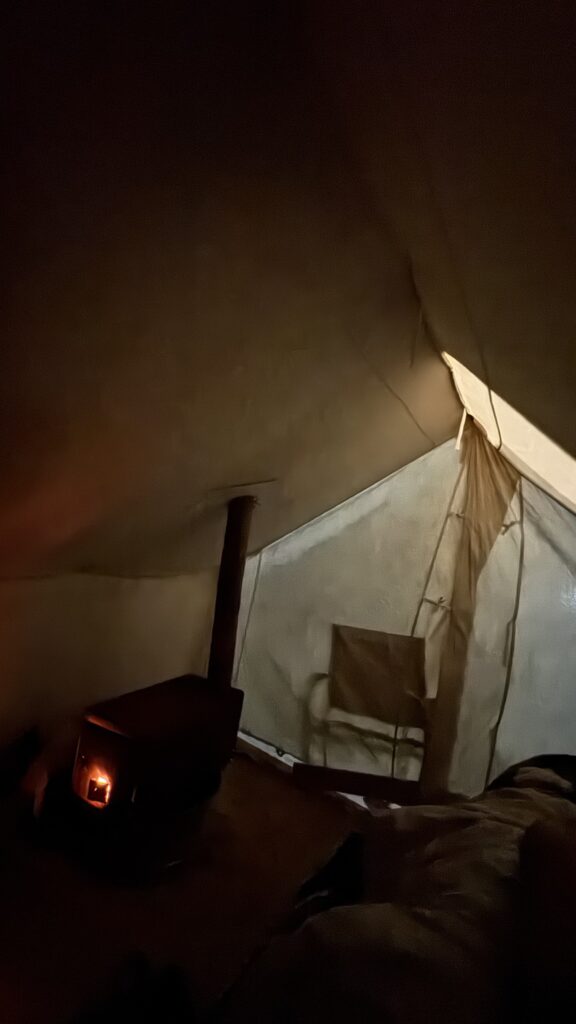
I spent the rest of the evening filming the music in the bif tent. After the music died down, I went back to my tent and tried to start a fire with some rather wet firewood (my own fault for not drying it out properly). The wind whipped around, and the rain beat on the roof, but I was safe, warm, and dry in my tent. And at the end of the day, that’s all that matters.
Mon, Sep 2
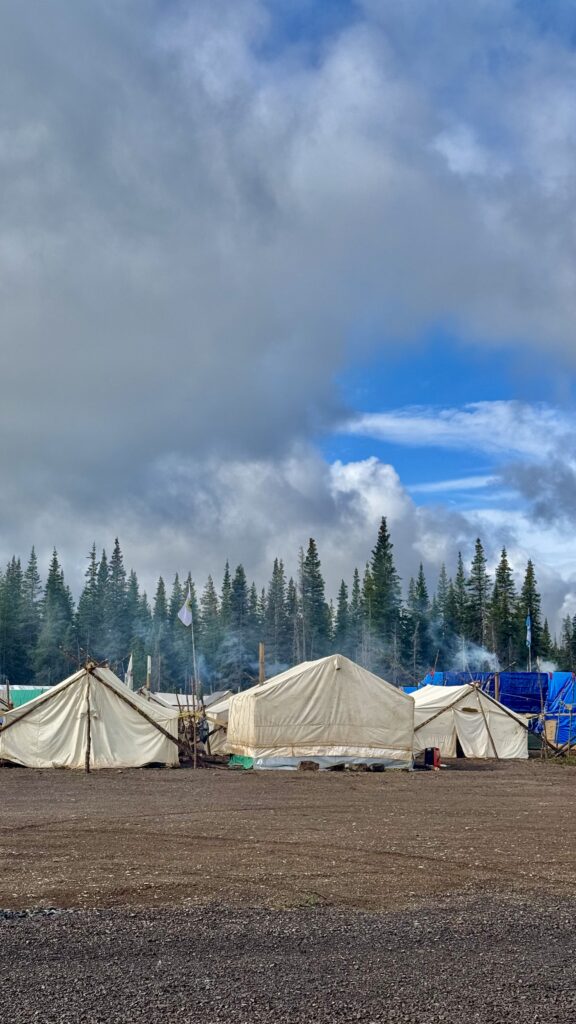
The sun finally broke through the clouds this morning, chasing away the storm and rain from the past few days. It was wonderful to sleep through the sound of rain, though I know I’m still not getting enough rest.
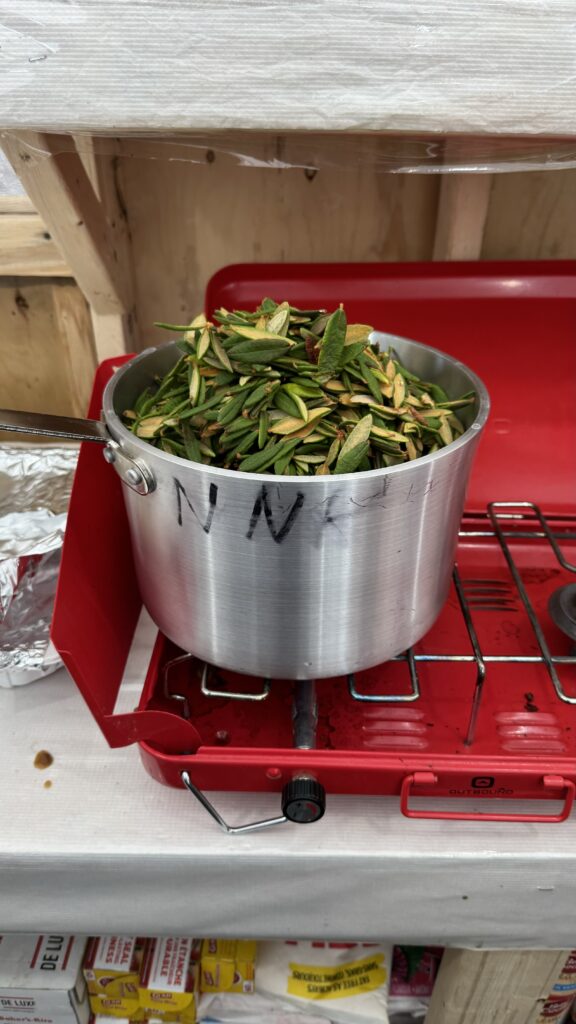
A big pot of ᐃᐦᑕ was boiling in the kitchen. I drank some, just in case. Many people at the camp have been coughing, and while I haven’t caught anything yet, I’m hoping it stays that way.
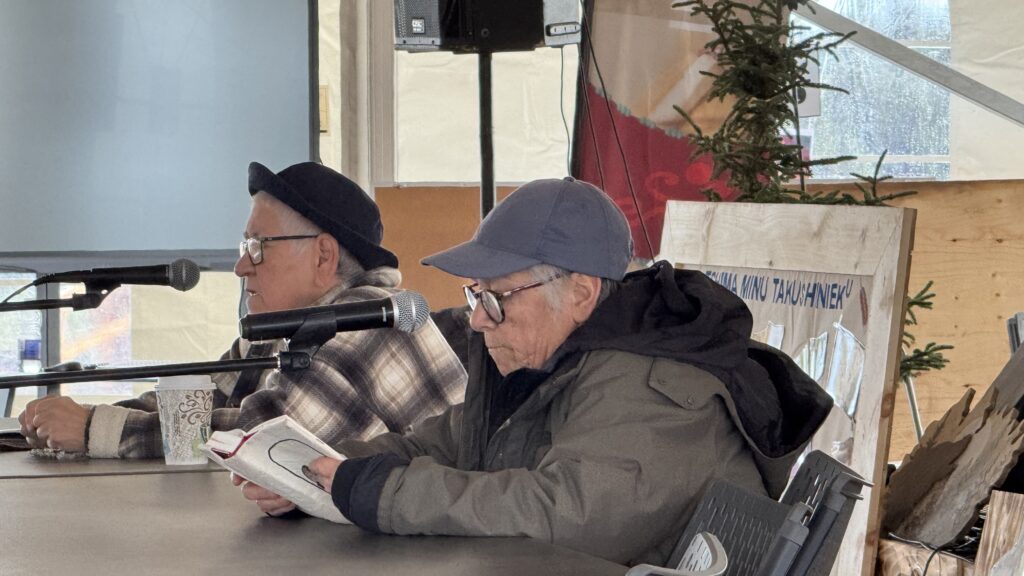
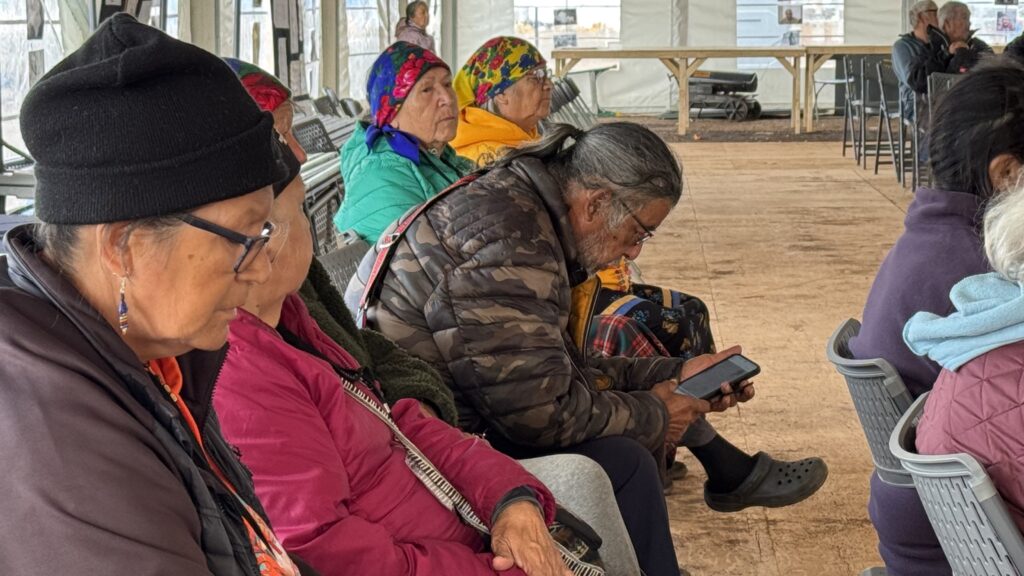
I’ve never been to a daily morning mass before, but I’m finding it quiet and meditative.




Next, we had a session on caribou. Caribou are not doing well on the Quebec and Labrador Peninsula, so the discussion focused on strategies to help them thrive again. The challenges they face are real, and it’s clear that their survival is deeply tied to the land and traditions of the people here.

After lunch, I went back to Kawawachikamach for a much-needed shower. It’s incredible how a simple shower can revive me and make me feel human again.
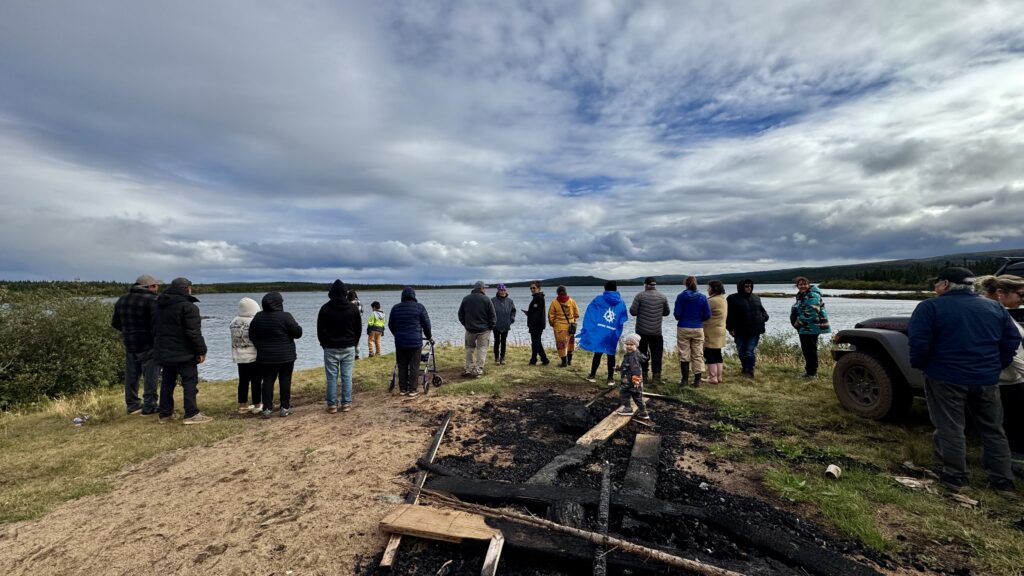
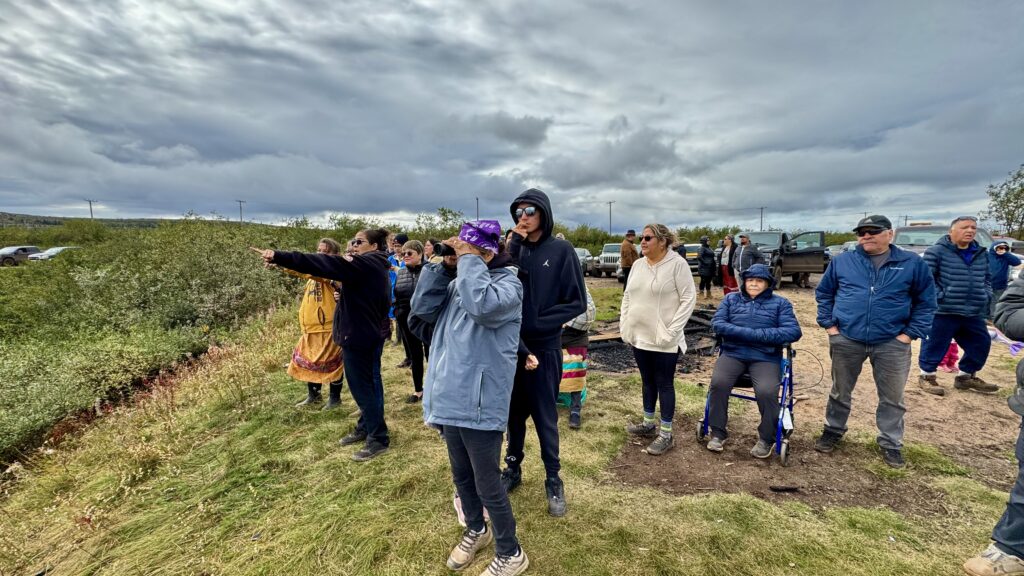
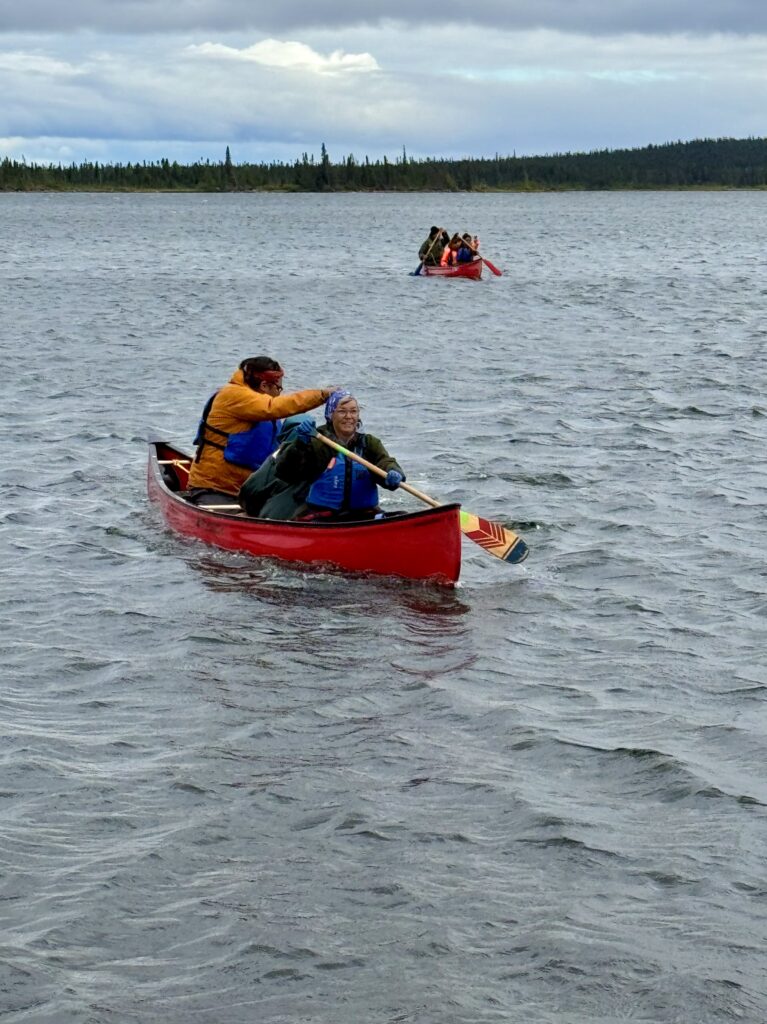
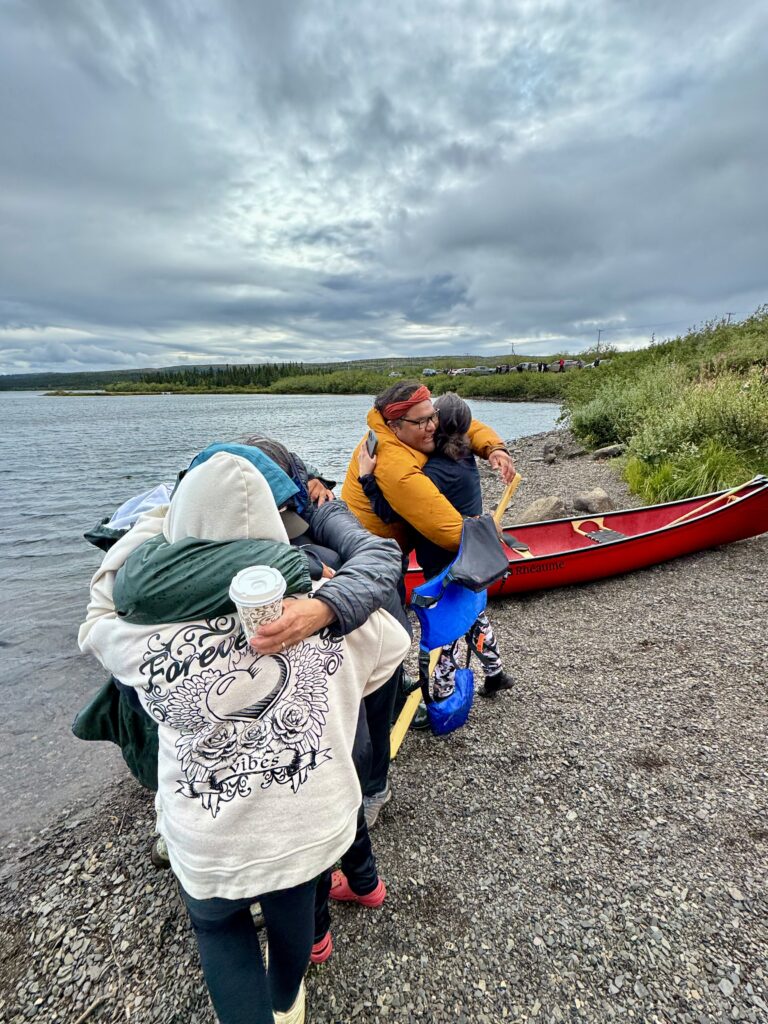
I then headed to Knob Lake Beach, where several dozen people were already cheering and honking their horns as paddlers came ashore.
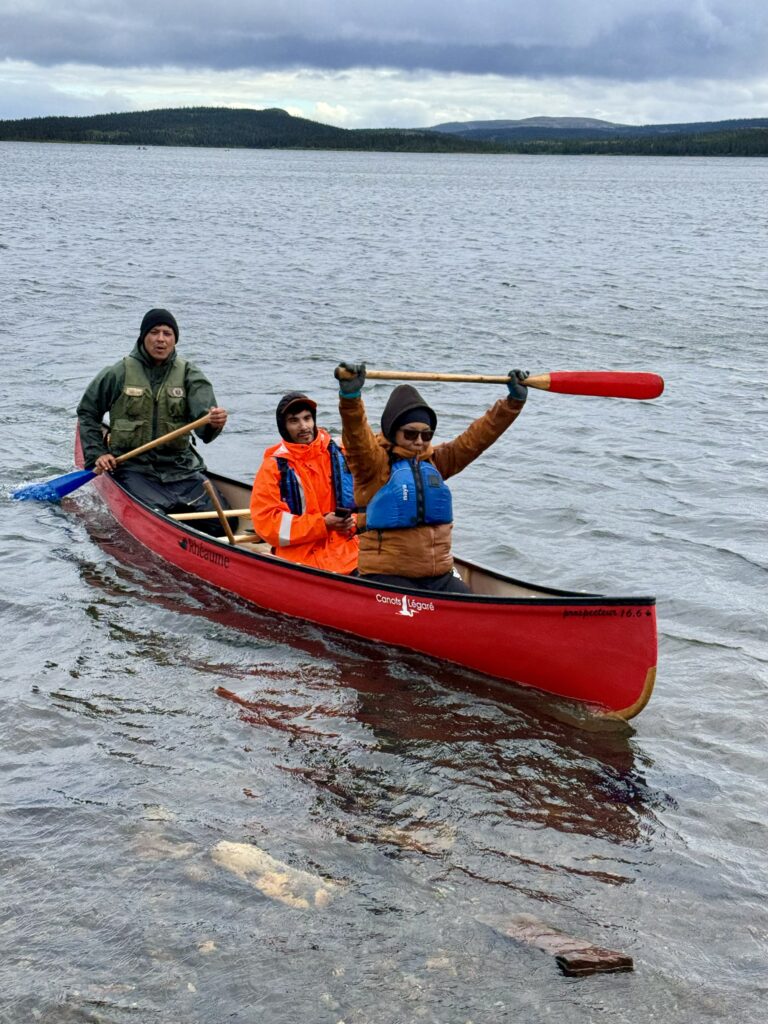
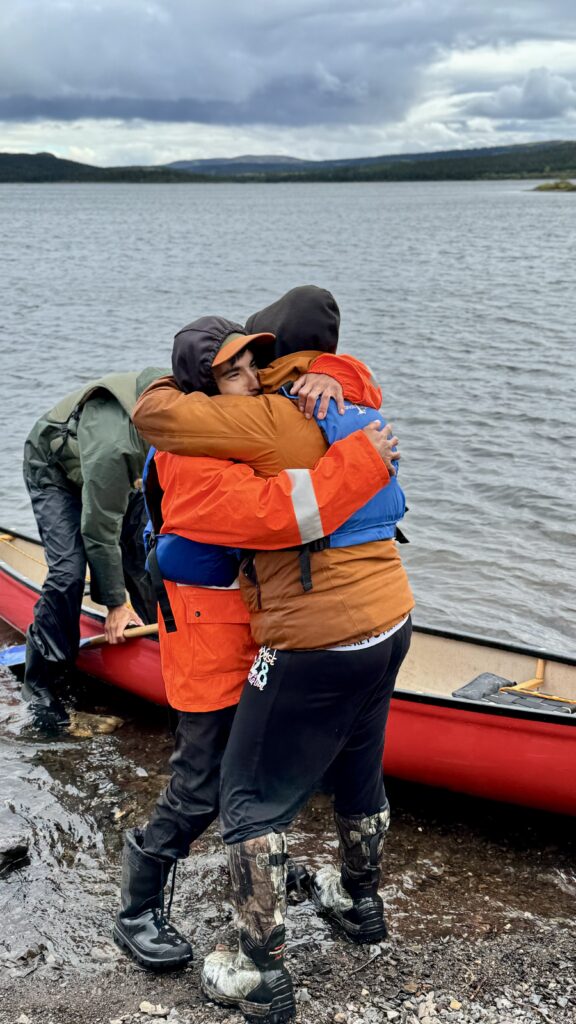
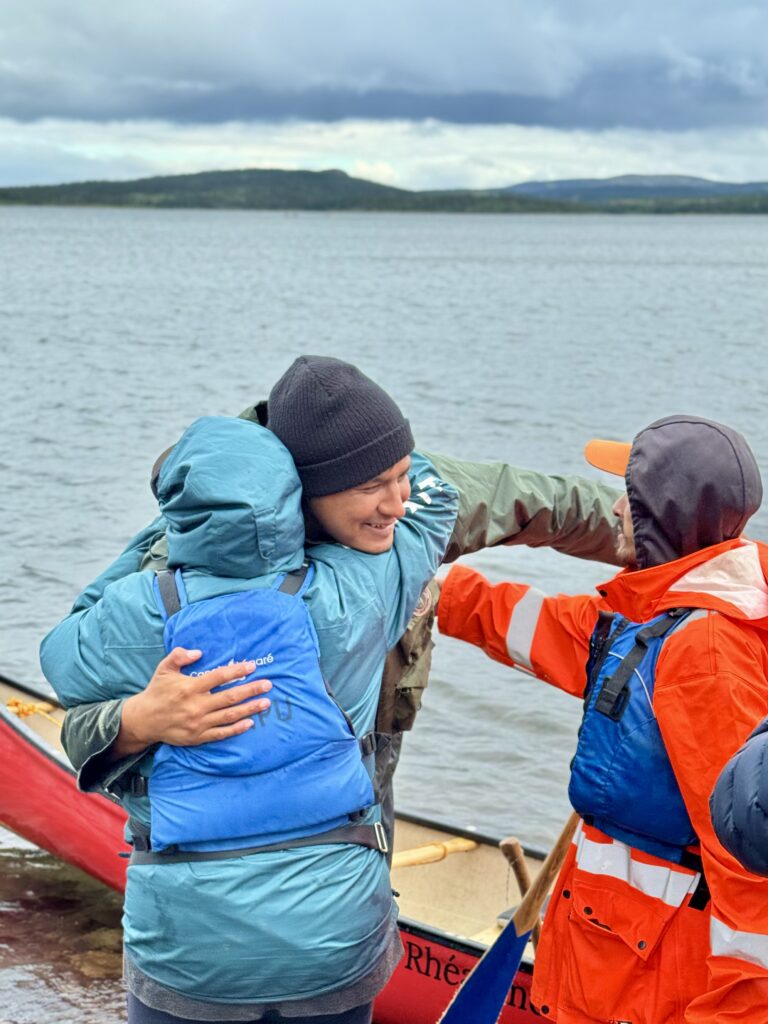
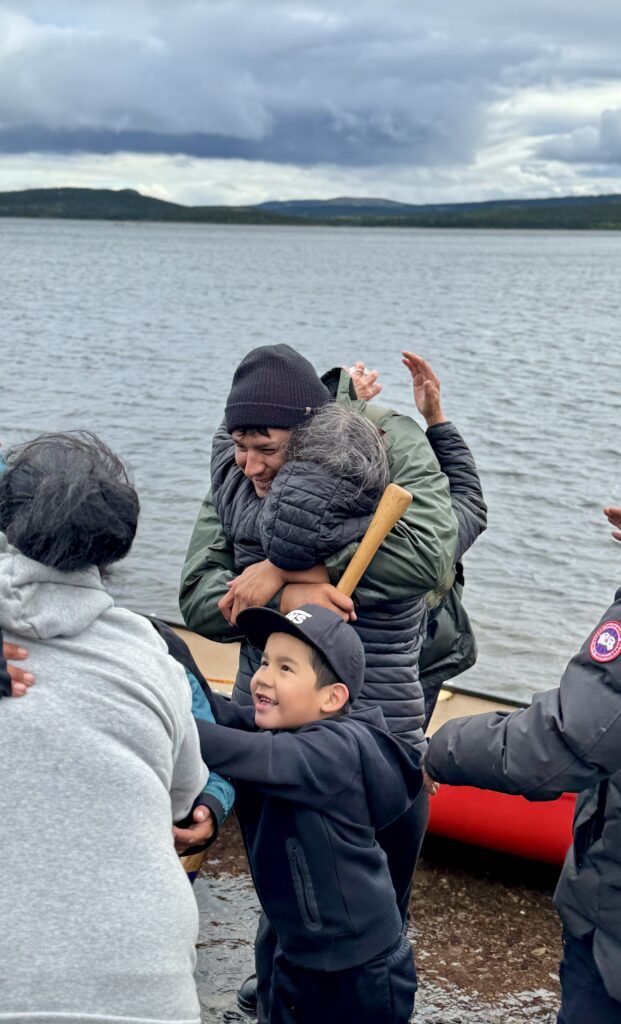
These paddlers had been out on the water since August 15, paddling over 300 kilometers in 19 days!
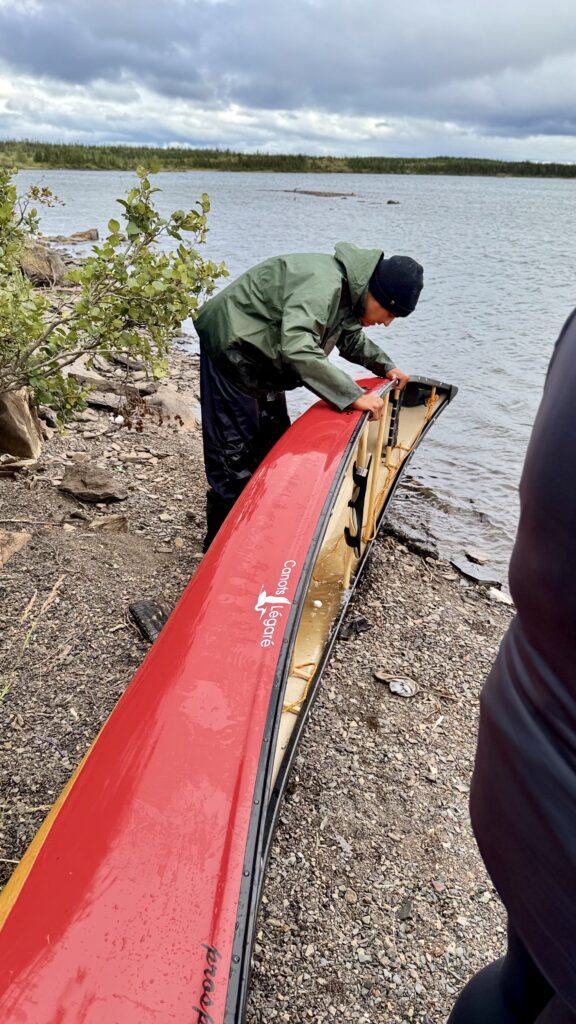
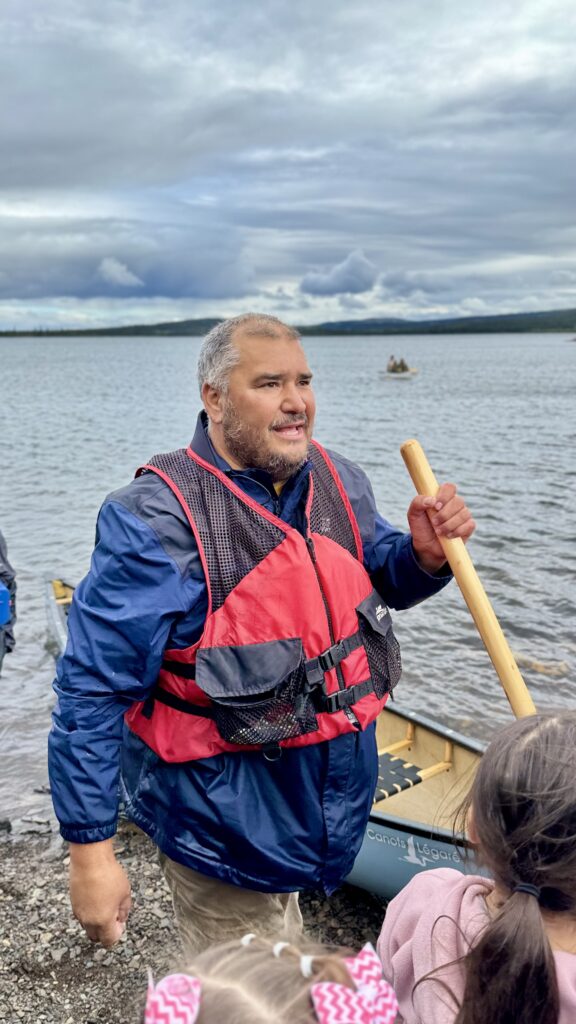
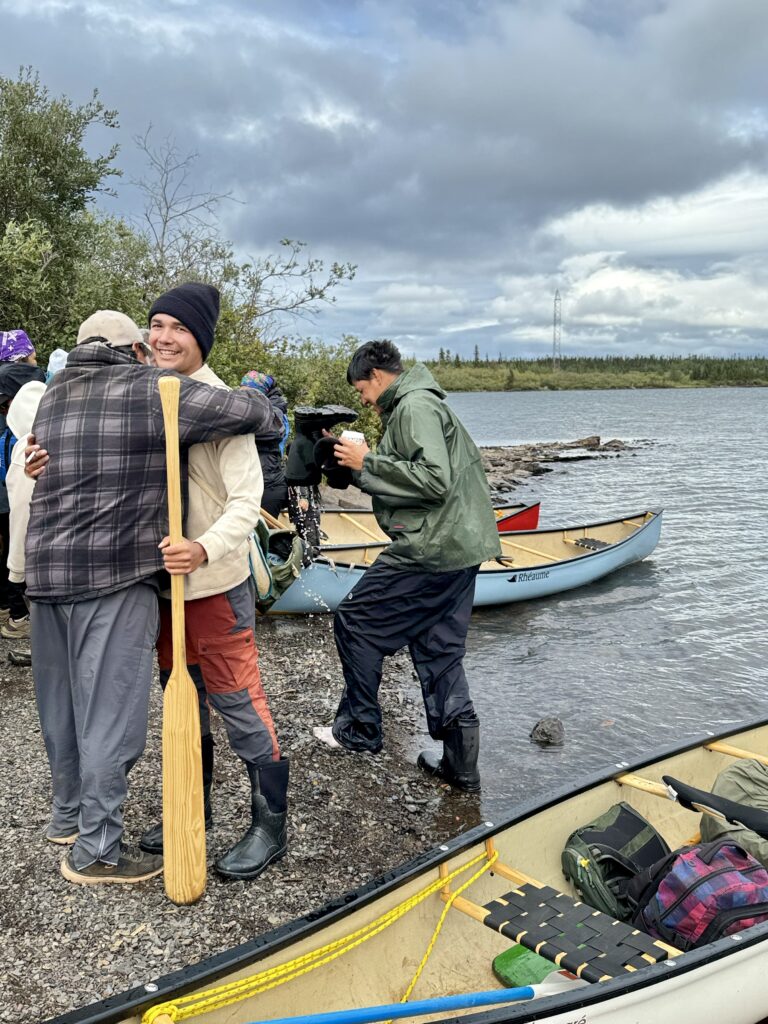
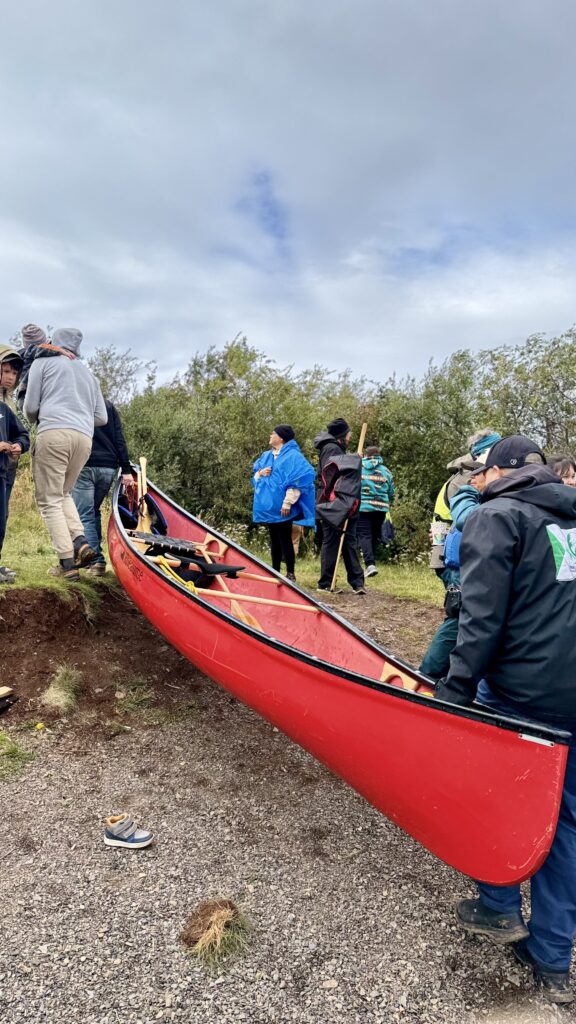
The group, made up of Naskapi and Innu people, kept the tradition of using canoes alive—a mode of transportation that their ancestors once relied on.
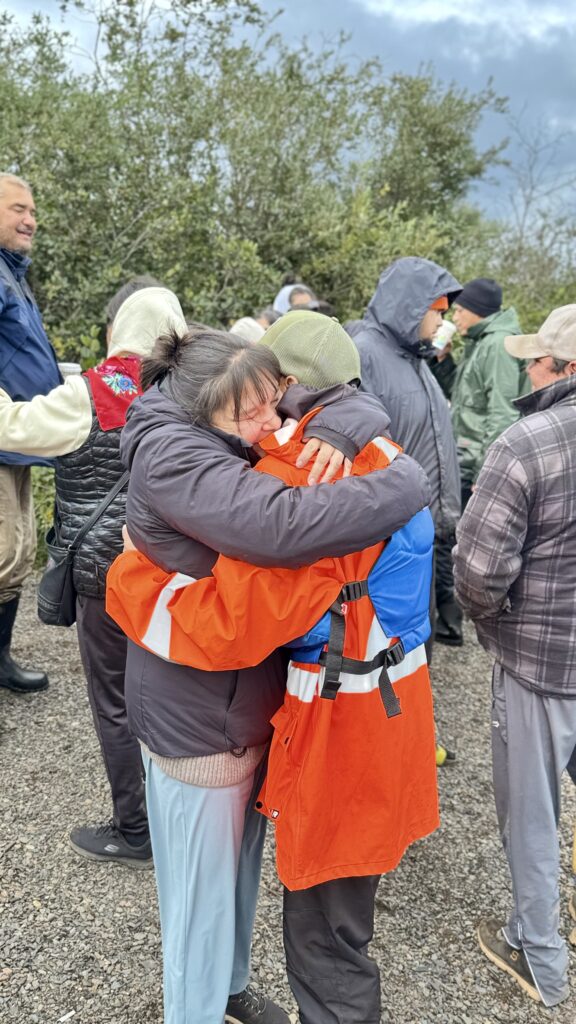
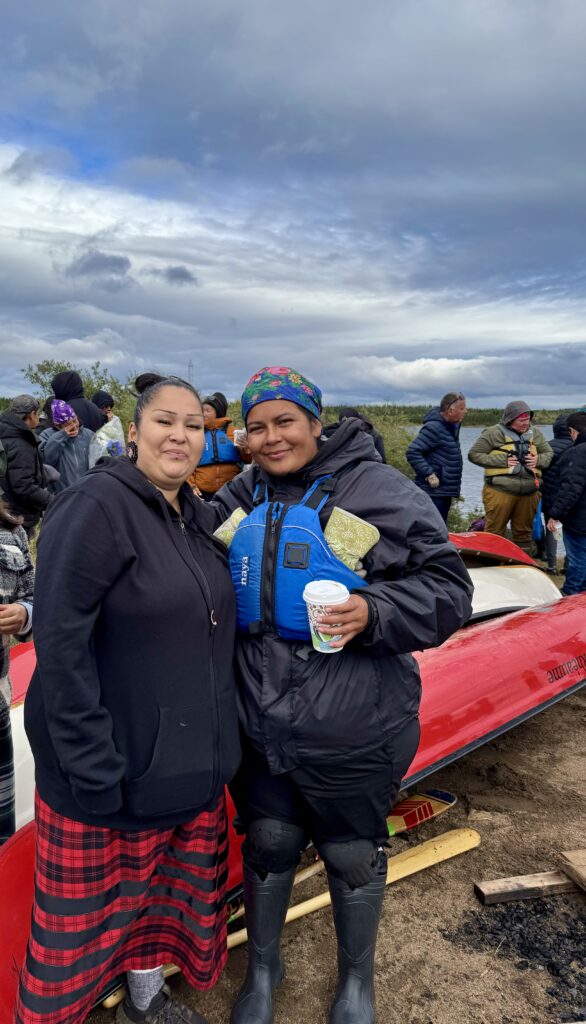
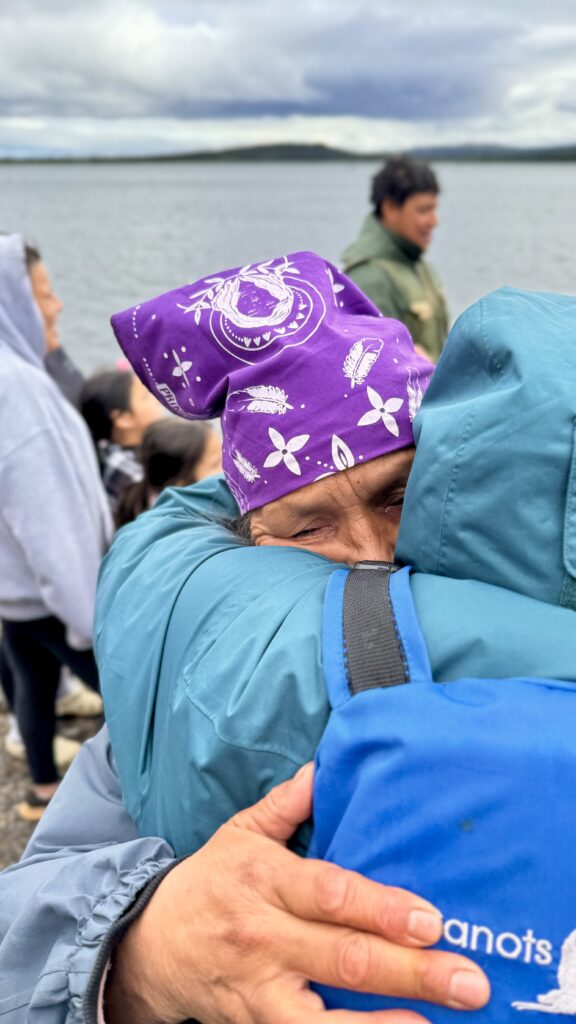
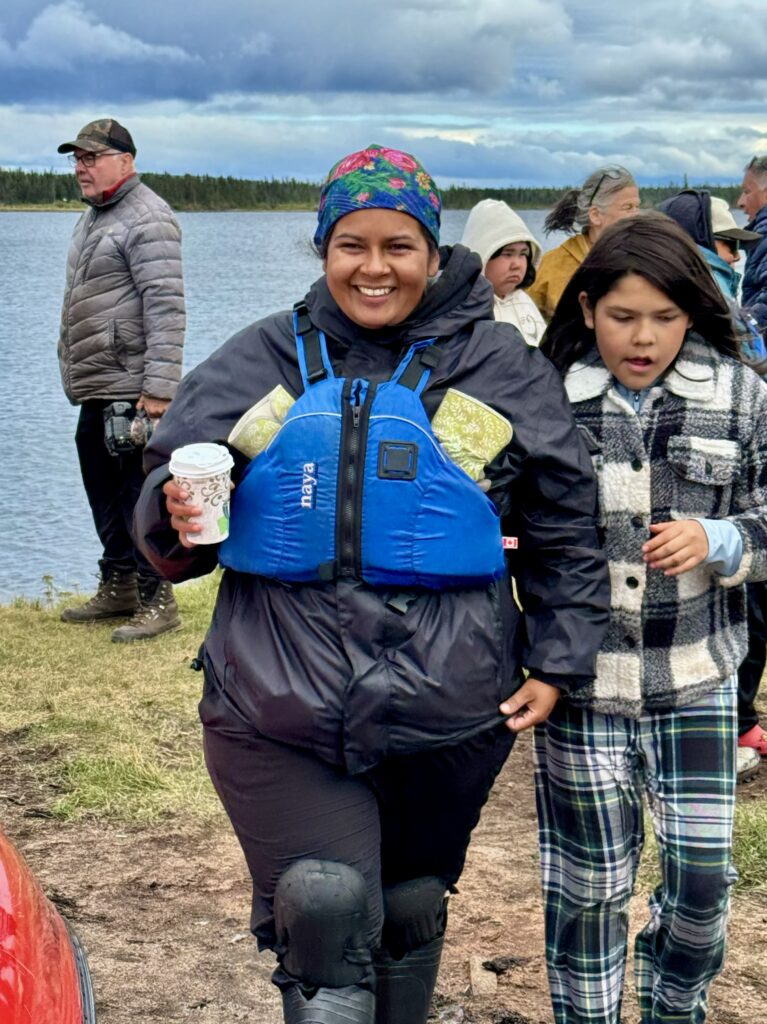
Despite the perils they faced—wildlife, accidents, and rough waters—the smiles on their faces as they were greeted with warm hugs and hot coffee said everything. It was such a joyful and proud moment for all the communities involved.
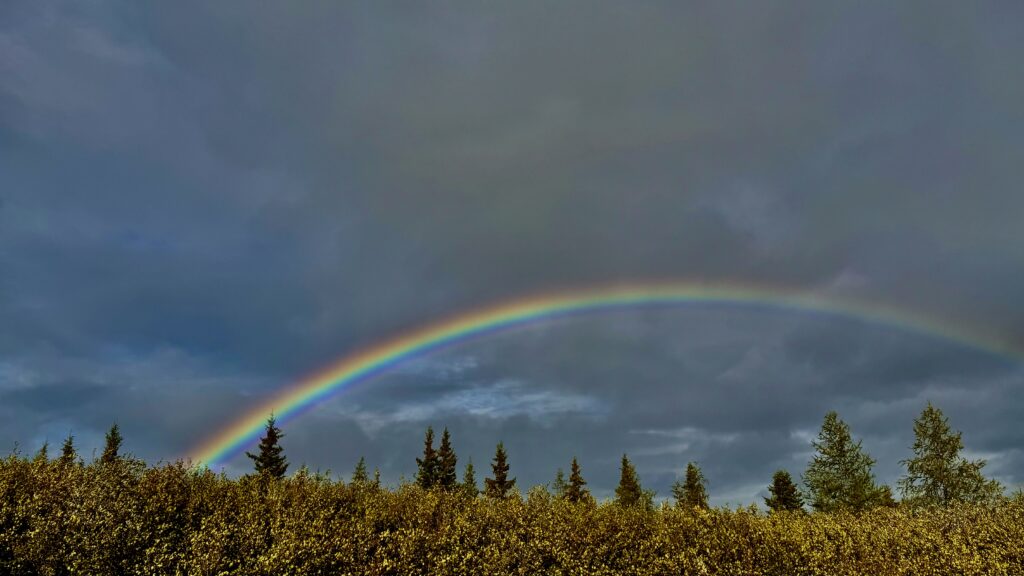
On my way back to camp, a sudden rainstorm blew through, followed by a gigantic rainbow. It felt like a reminder that I needed a break.
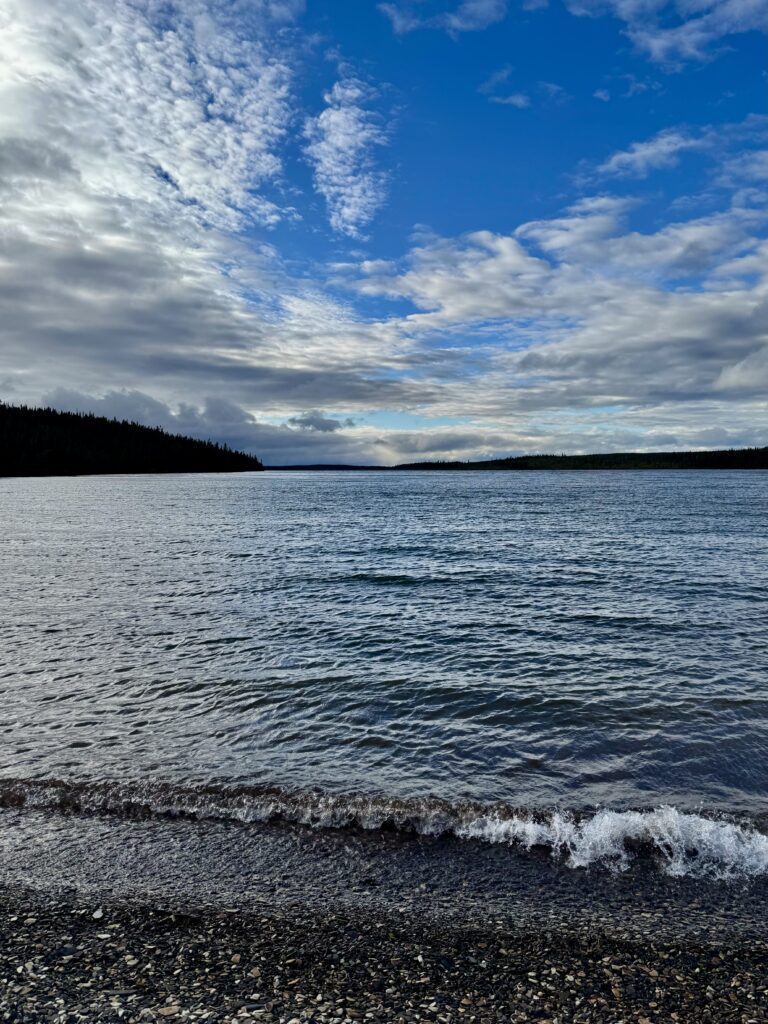
So, I stopped at the beach.
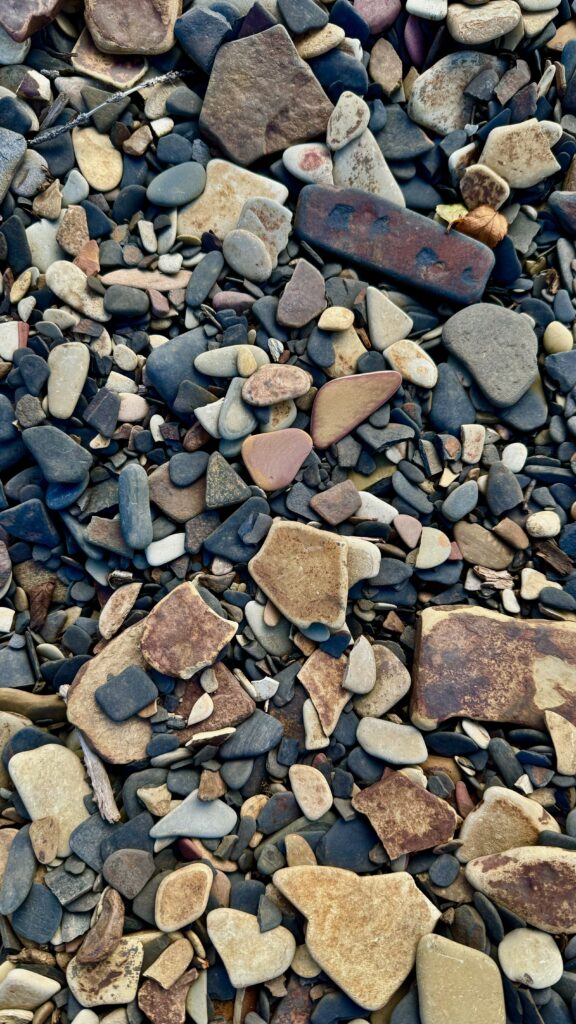
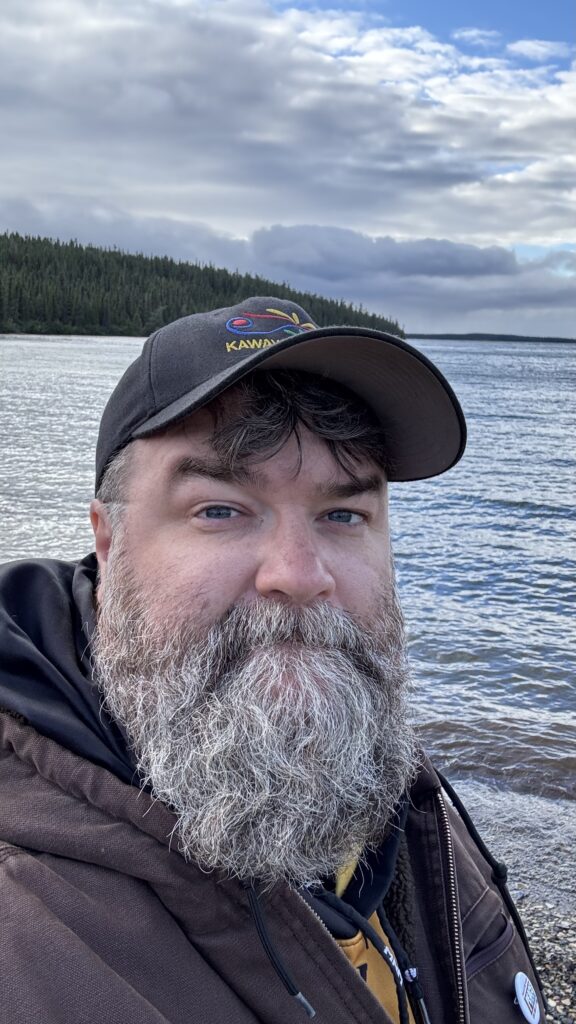
I’ve been working non-stop since I arrived—up with the sun, staying up late into the night, fighting with the internet to upload stories, photos, and videos. But the beach is one of my favorite places in this whole area, and it helped me relax
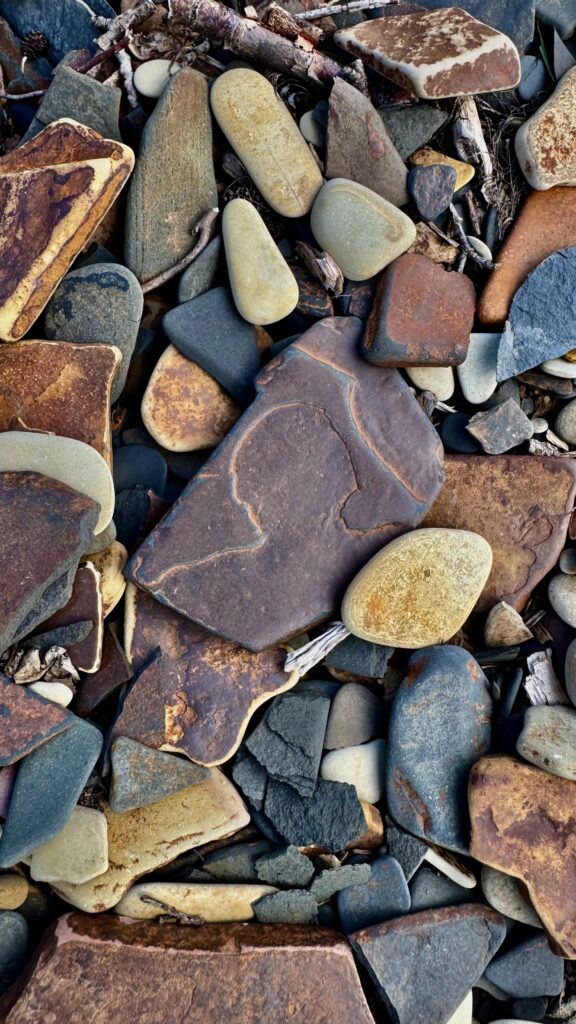
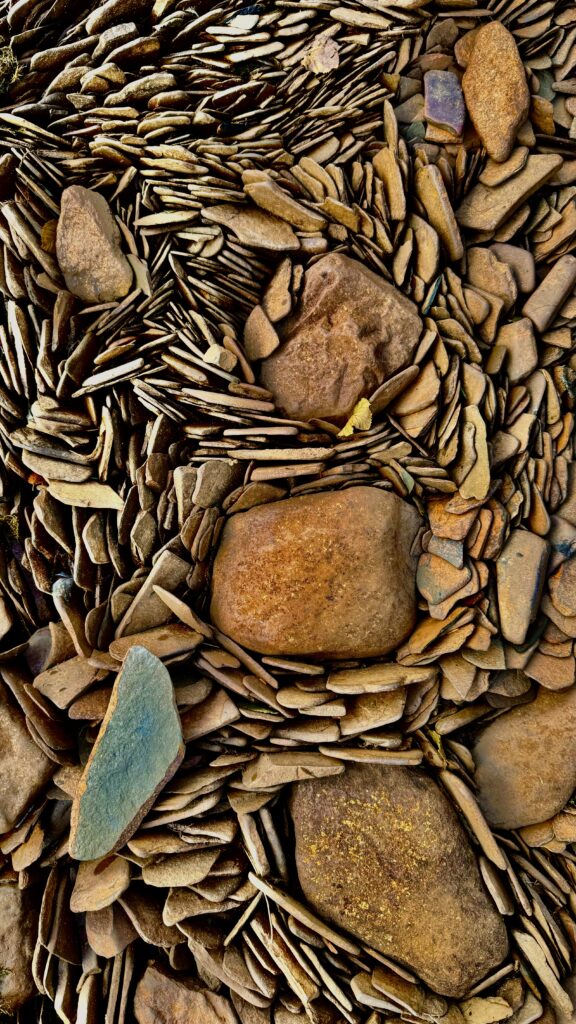
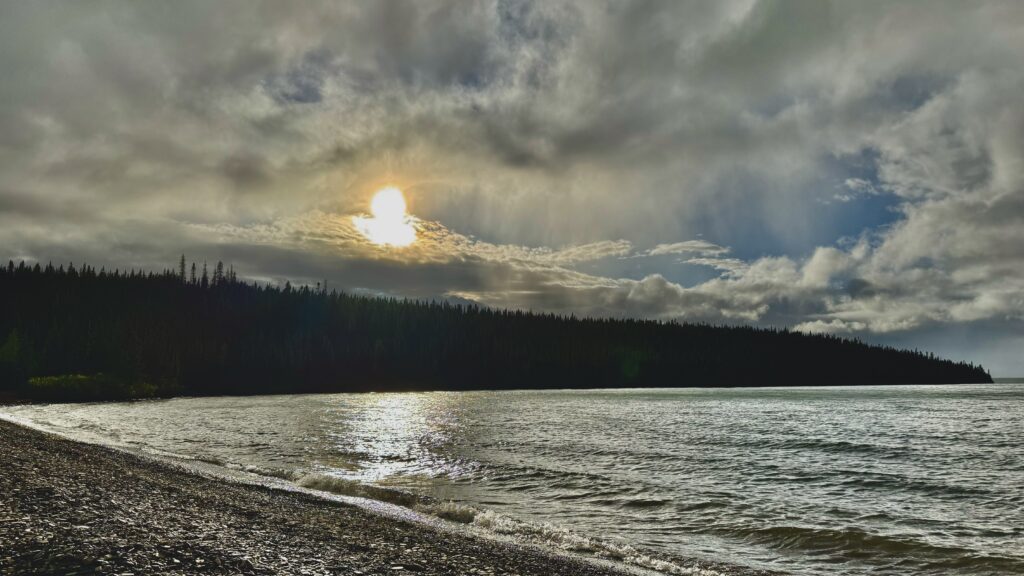
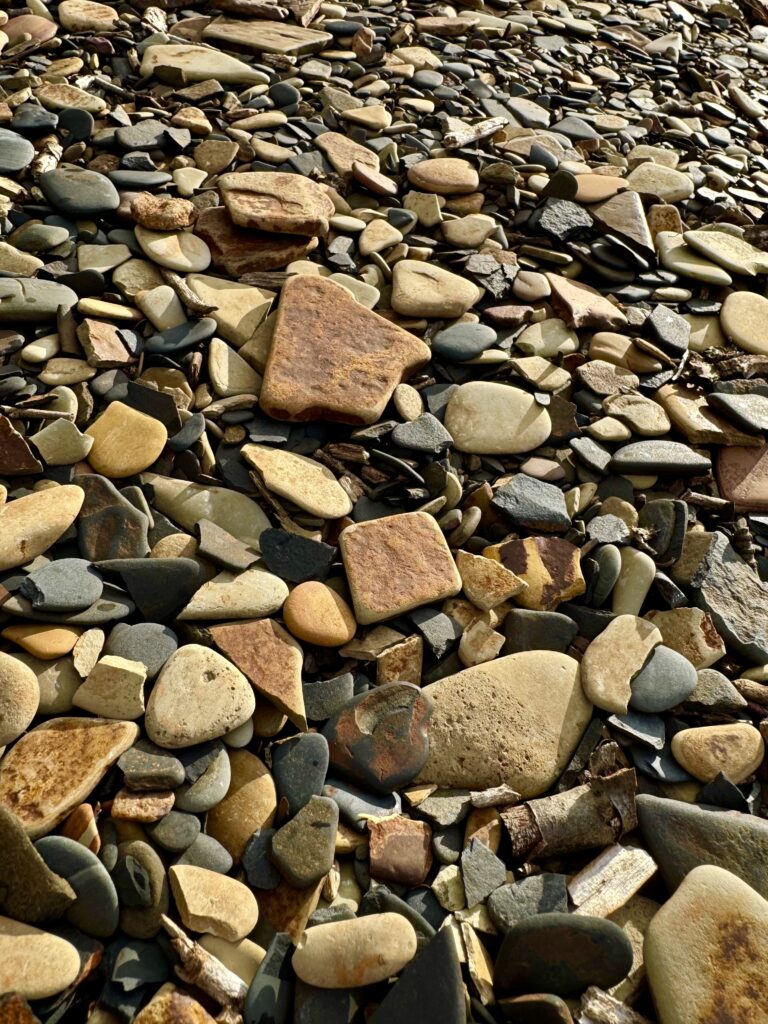
It’s a hidden cove, covered in beautiful, rounded flat stones perfect for skipping. The stones come in half a dozen different colors, and I loved picking them up as a kid. I picked out a few that I thought my own kids would like.
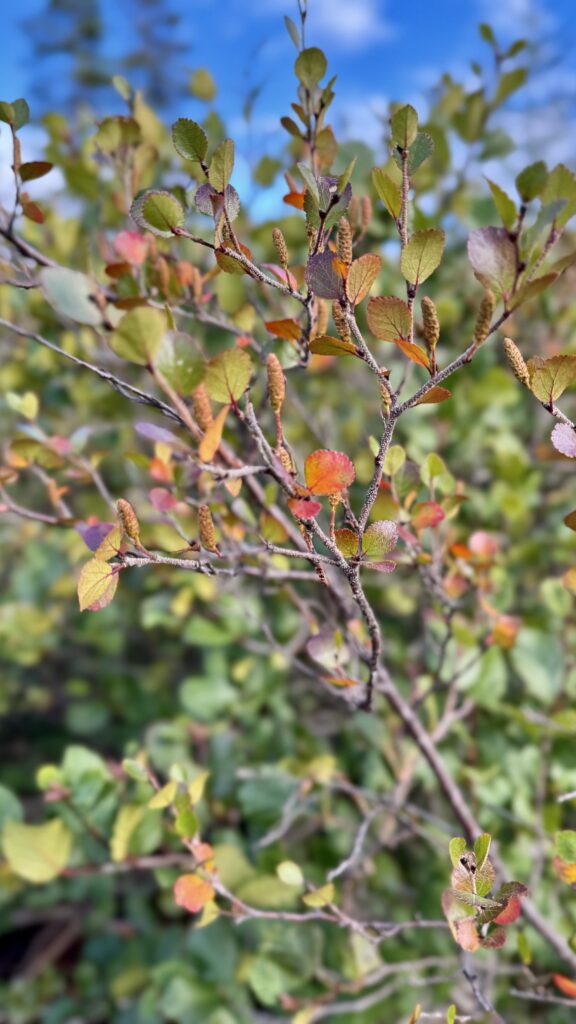
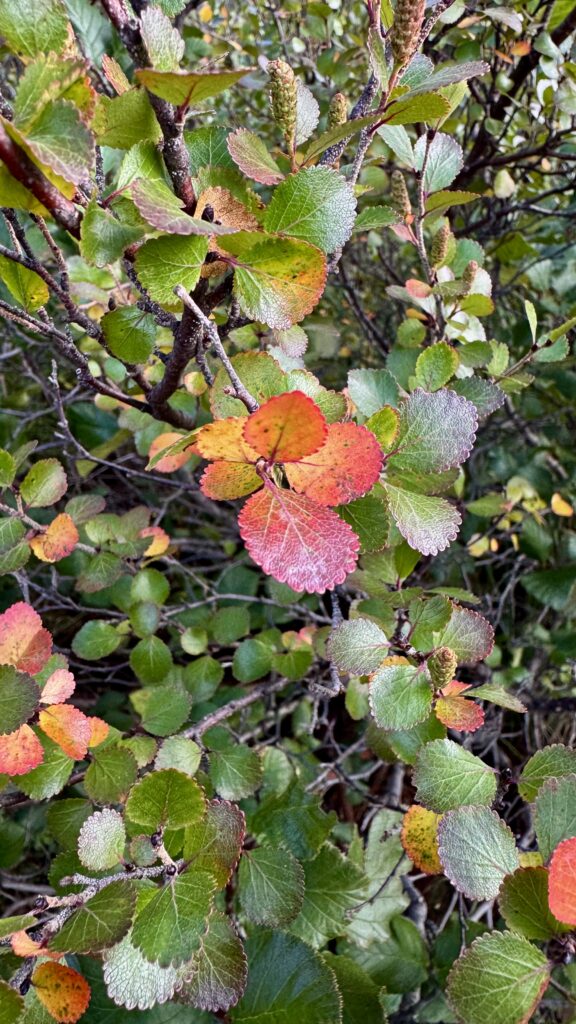
Autumn is already showing itself here, with the bushes turning fiery shades of red and orange.
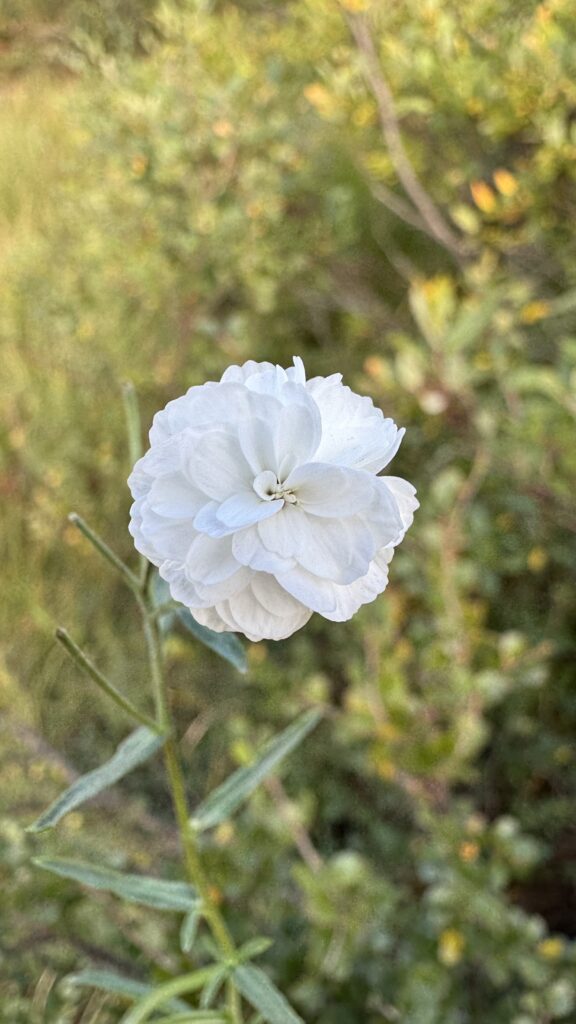
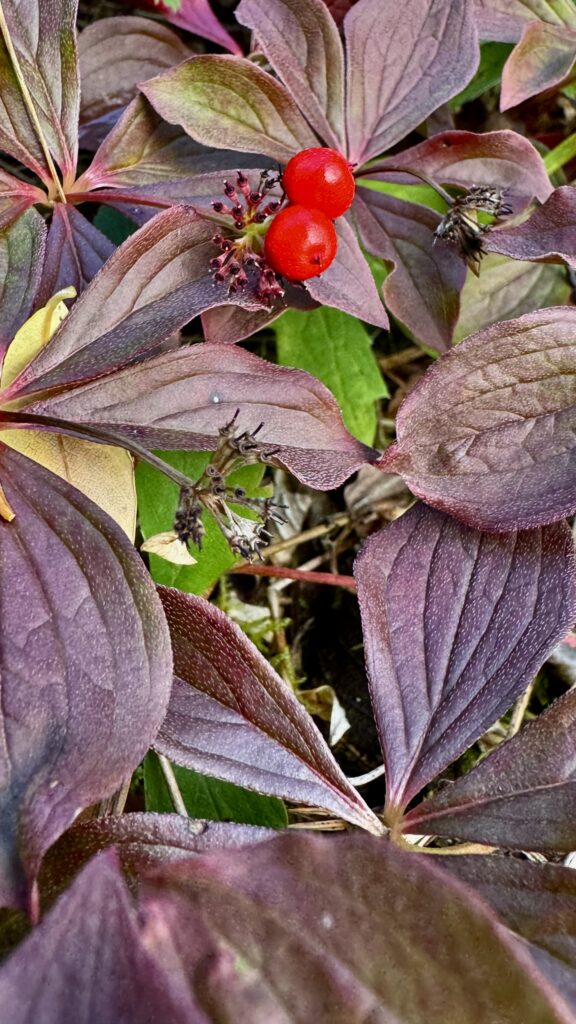
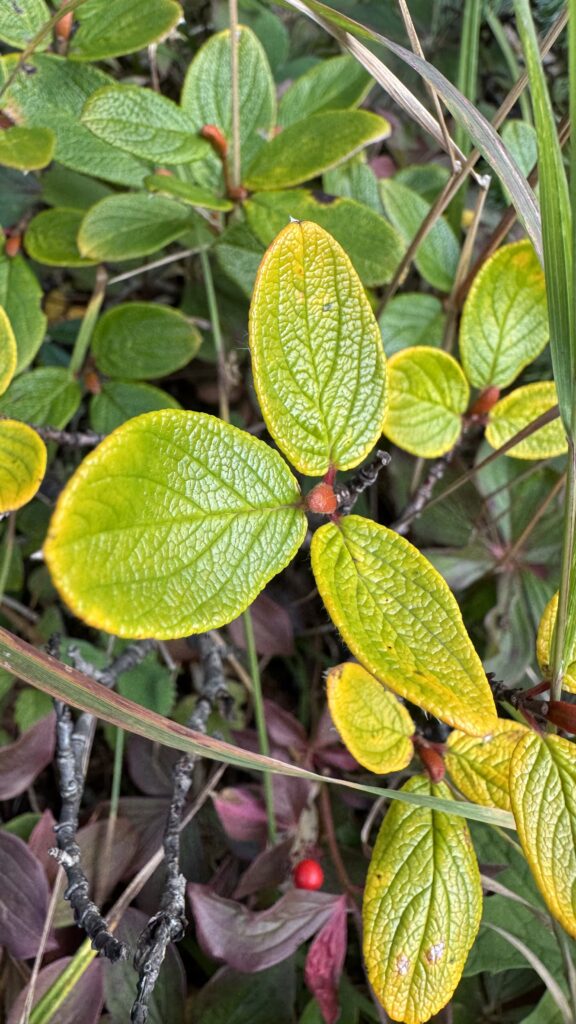
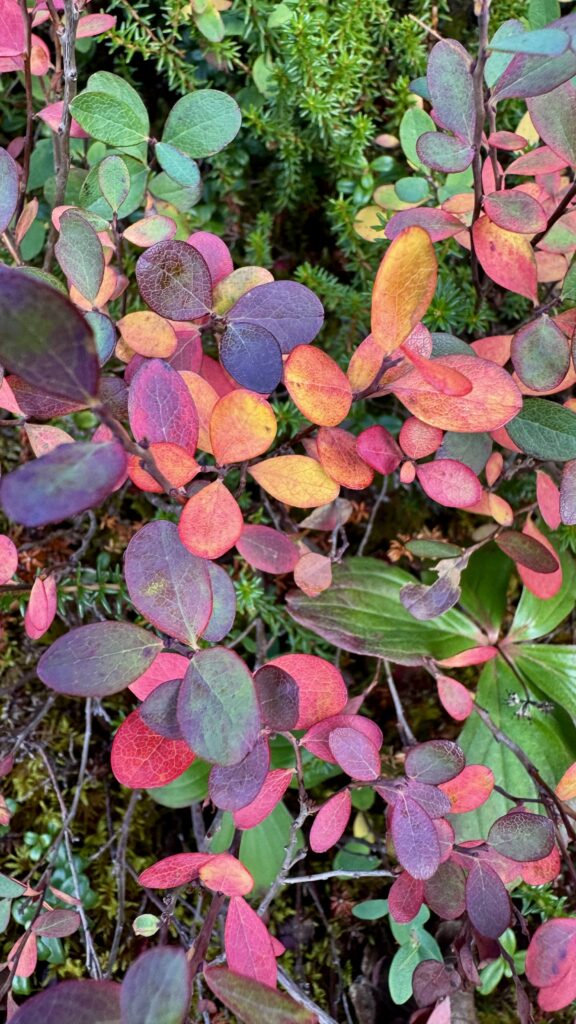
I found some small white flowers that look a bit like carnations, though I’m not sure what they are. The wind was still strong from the passing storms, and the waves were calming to listen to.
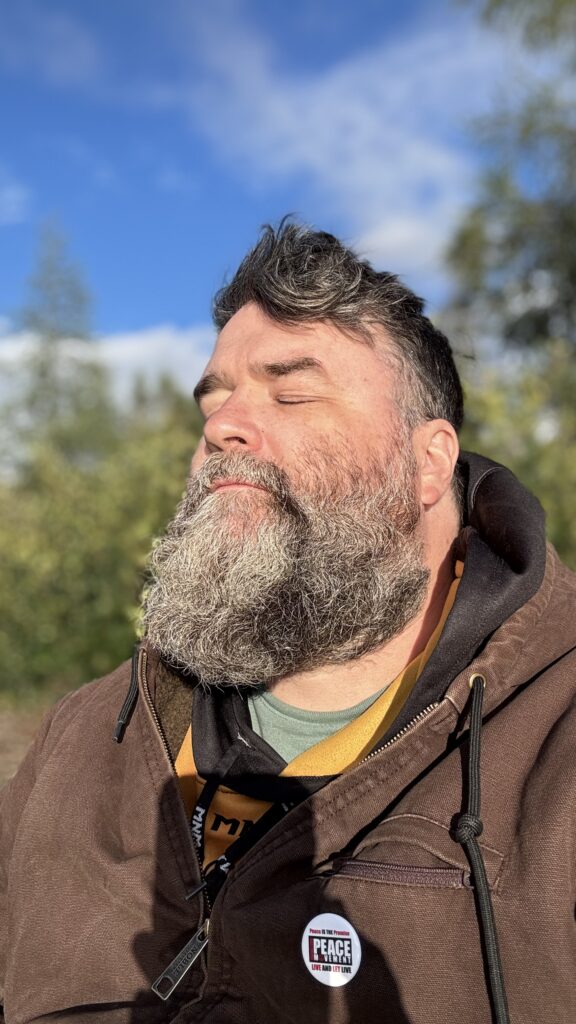
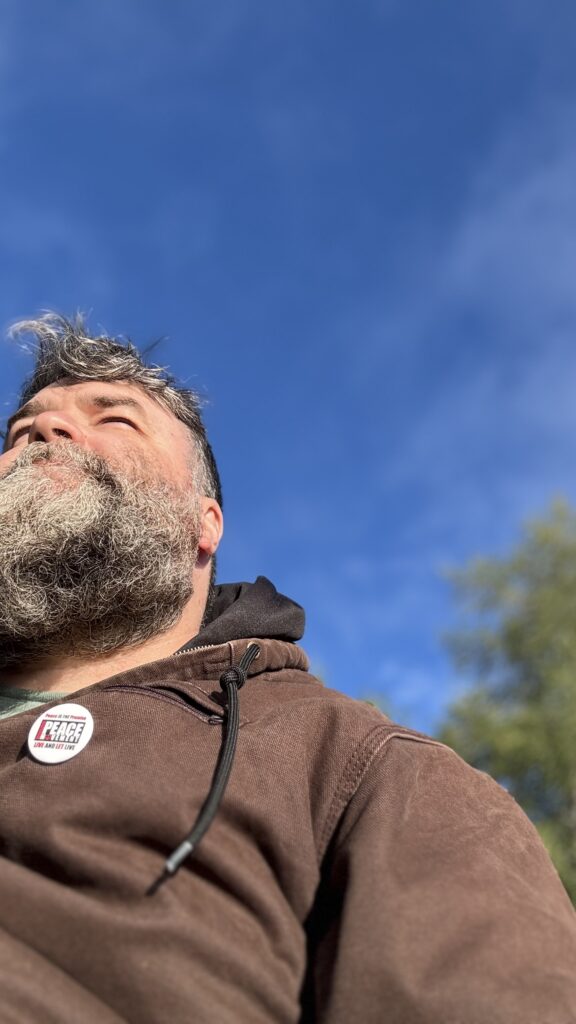
I wandered the woods near the beach, taking in the beauty of the forest, which felt magical and full of life. The beach itself is unique, with its colorful stones shaped by the ice in winter and the waves in summer. I soaked it in.
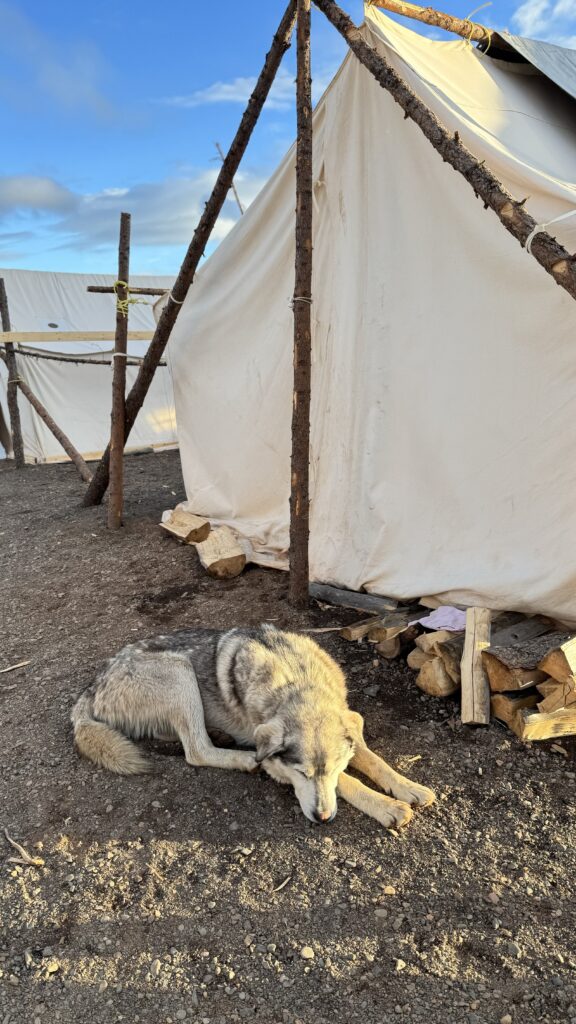
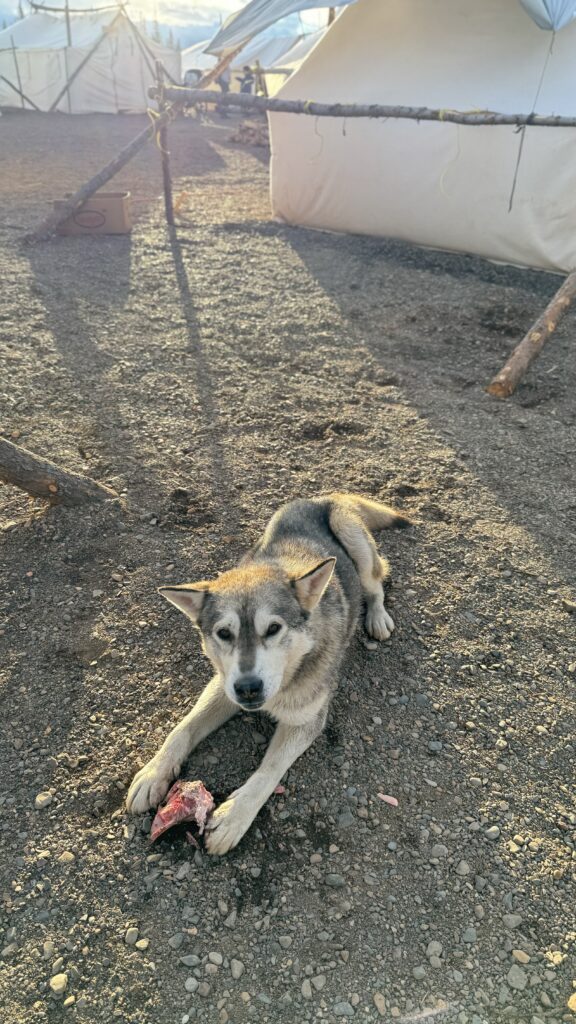
Back at camp, some new dogs had joined us, happily gnawing on caribou bones we’d tossed to them after cooking the meat.
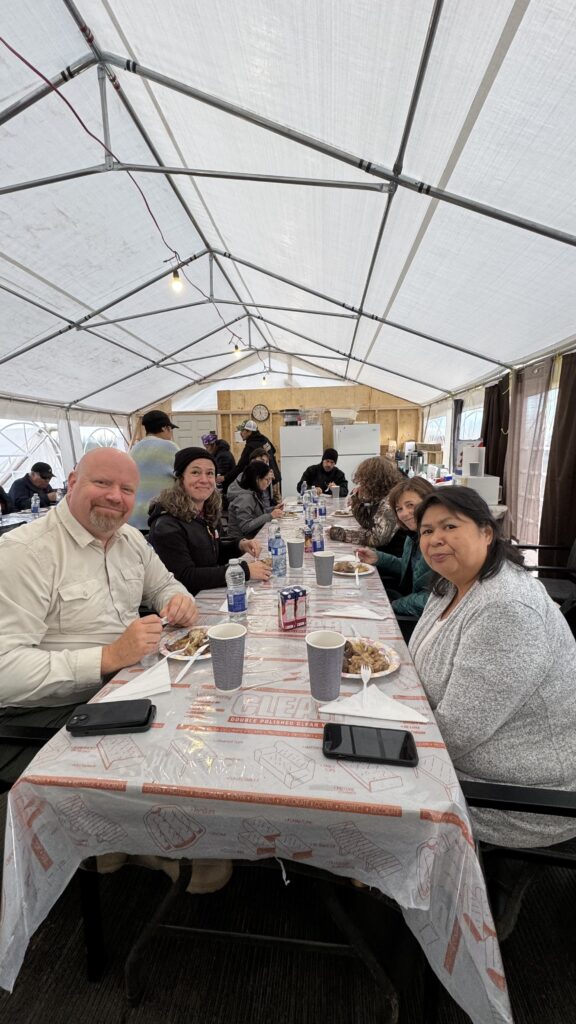
The Quebec Minister of Indian Affairs, Ian Lafrenière, paid a visit to the camp and had dinner with Chief Theresa Chemaganish. He seemed genuinely surprised to learn that I spoke Naskapi. It was nice to see this level of engagement from him.
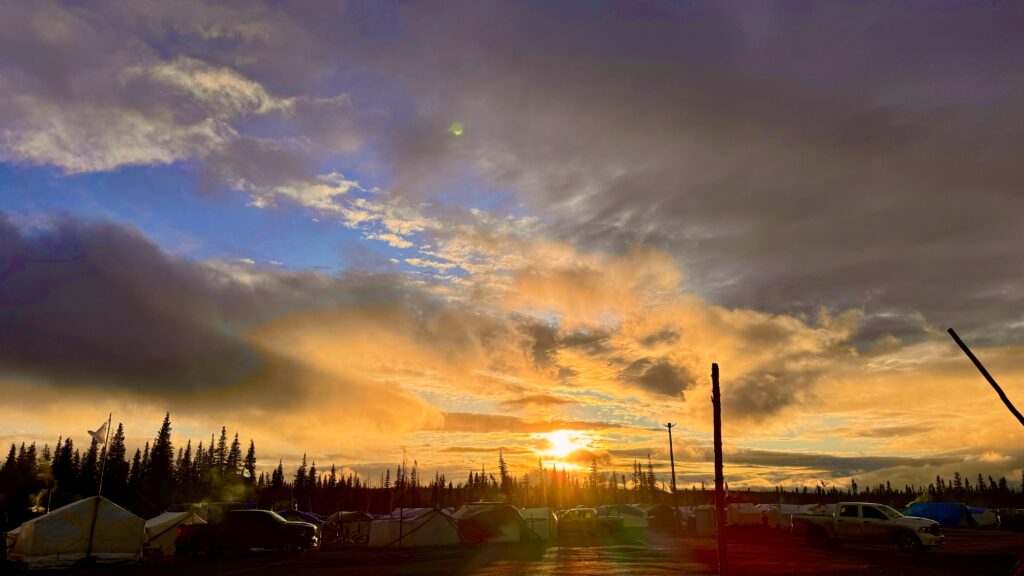
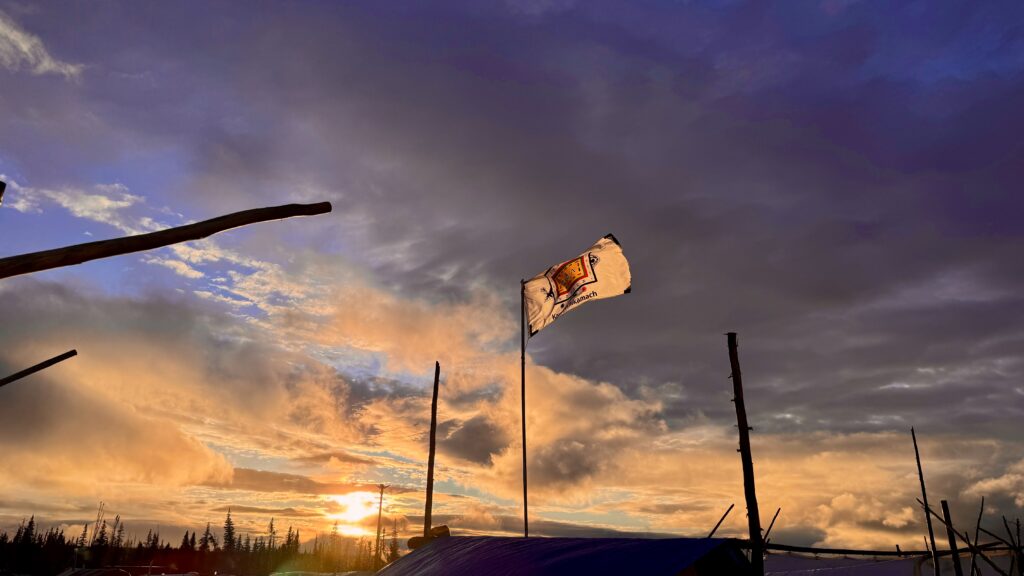
As the sun set and the storms cleared, the camp was bathed in golden light.
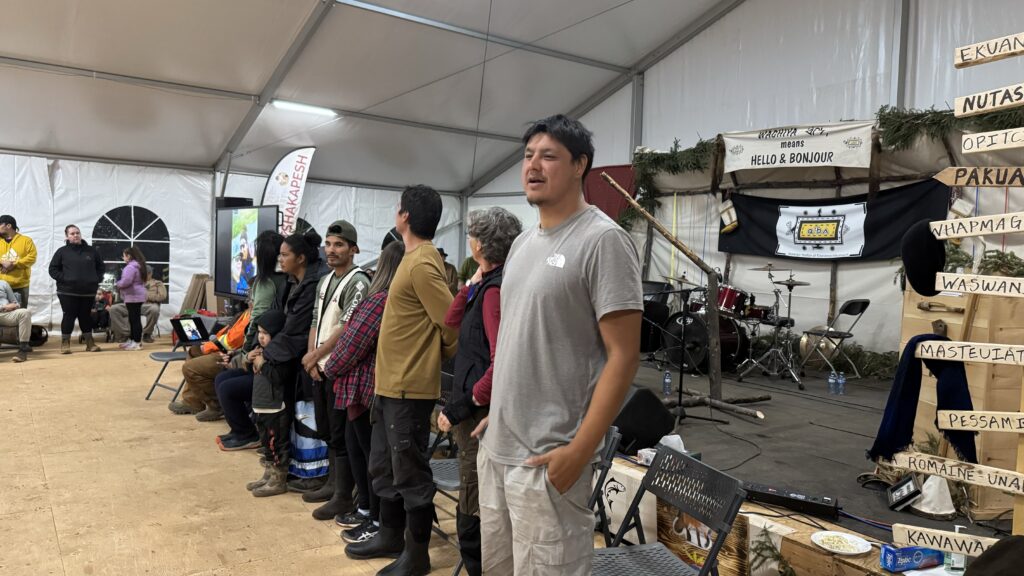

We took time to honor the canoeists, showering them with gifts, hugs, and congratulations.
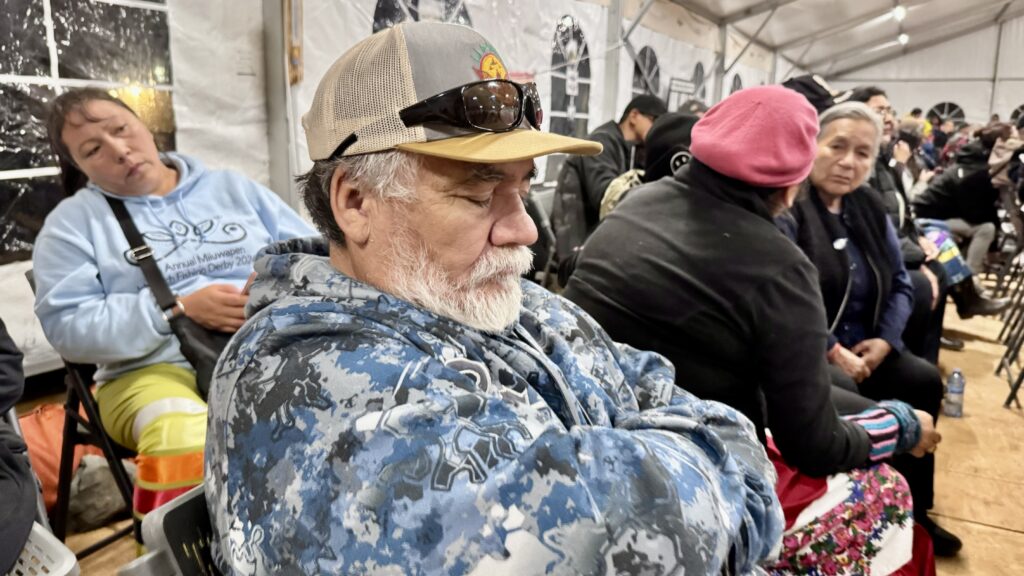
Everyone is feeling the wear of this long event—even our king, Johnny Saganash, took short naps between acts!

Later, I took a walk around the camp. It was sad to see that some tents were already being taken down, signaling the end of the gathering for some. But it was heartwarming to see how carefully each nation was dismantling their camps, piling stones, branches, and picking up every piece of trash. It was a kind and respectful way to leave the land.
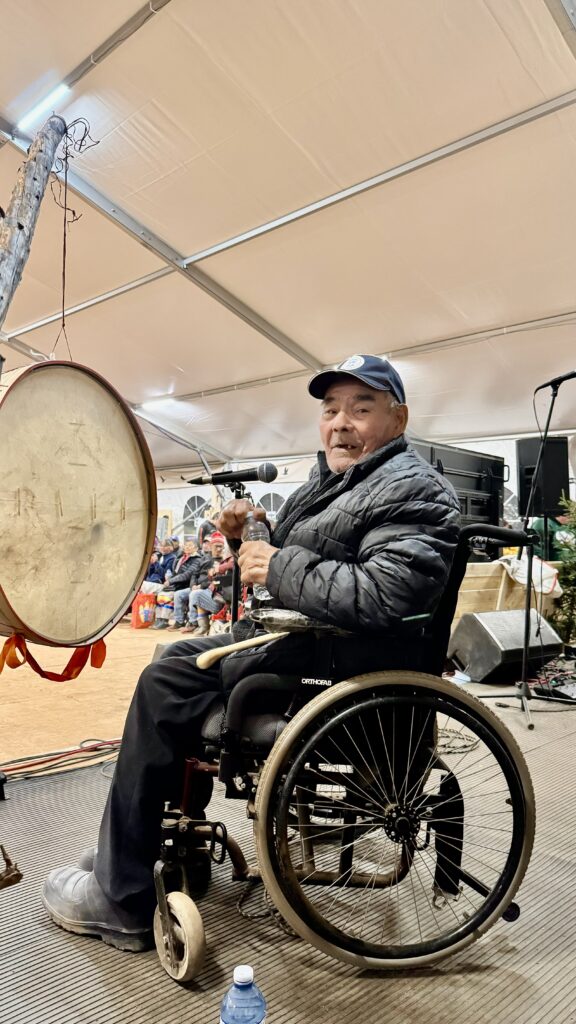
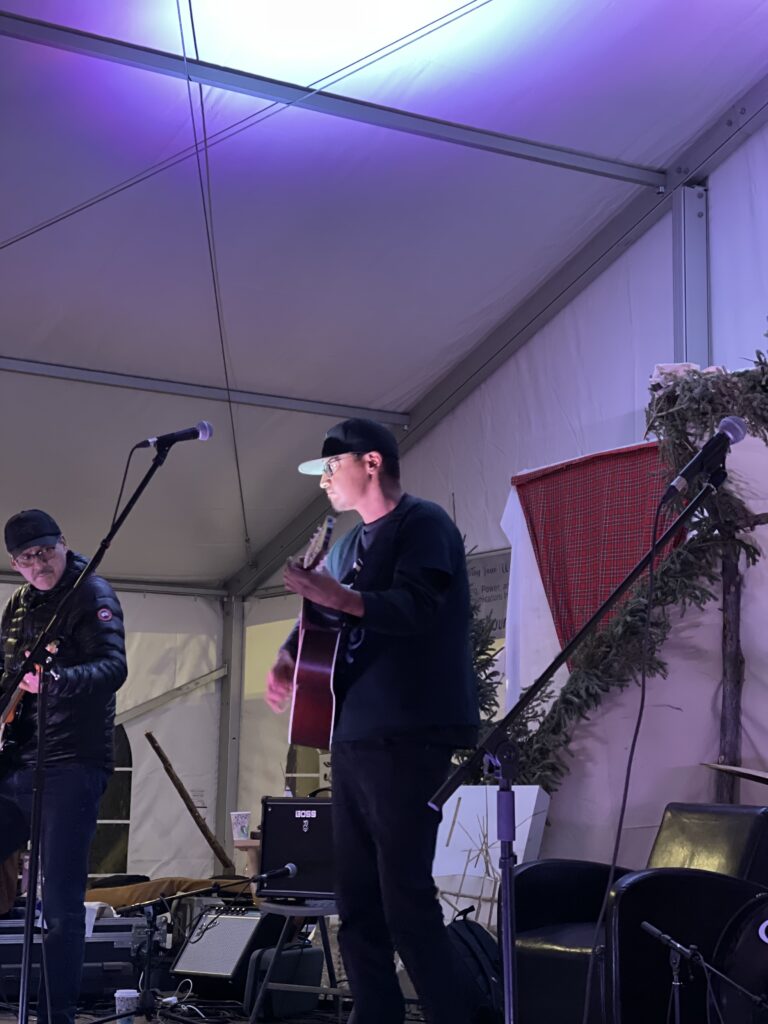
The music tonight was incredible—traditional drummers and three different bands filled the air with sound. My longtime friend Willie Nab played, and I hope to upload videos of the sets later.

Somewhere along the way, I had misplaced my monopod, but someone found it and placed it on my tent. I was so relieved!
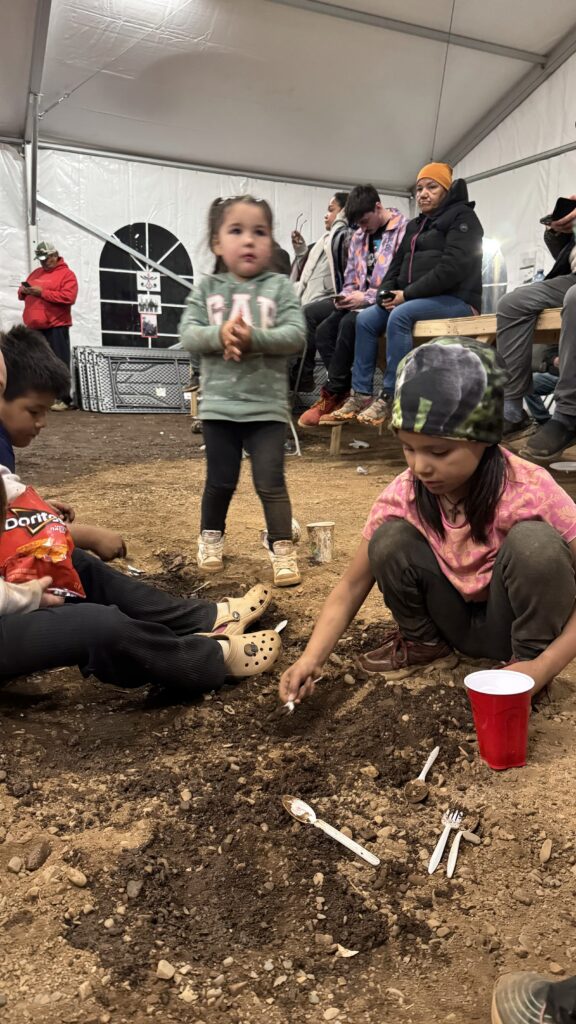
As the music wound down, some kids turned part of the dirt floor in the big tent into an indoor sandbox, having a blast while the adults relaxed.
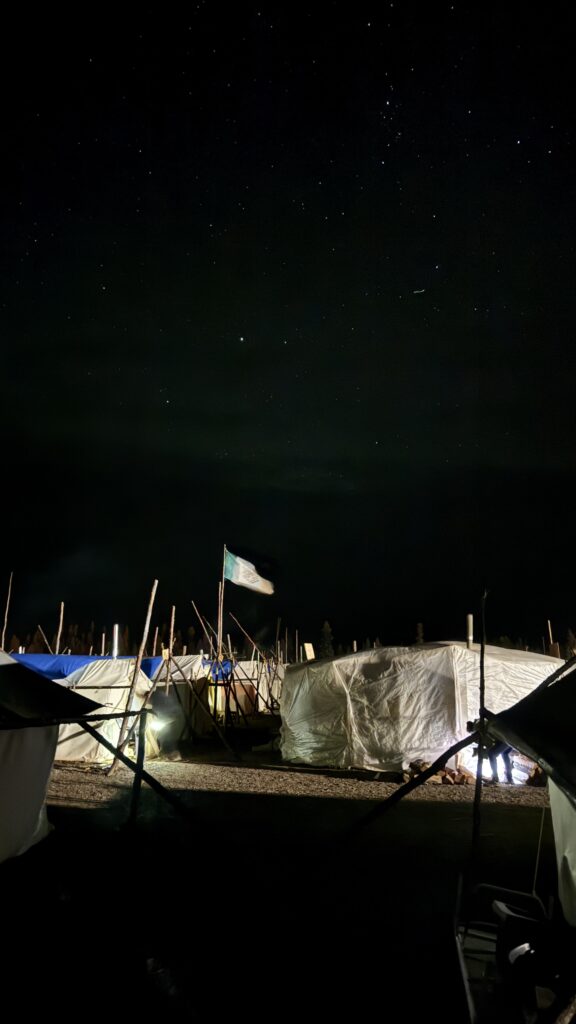
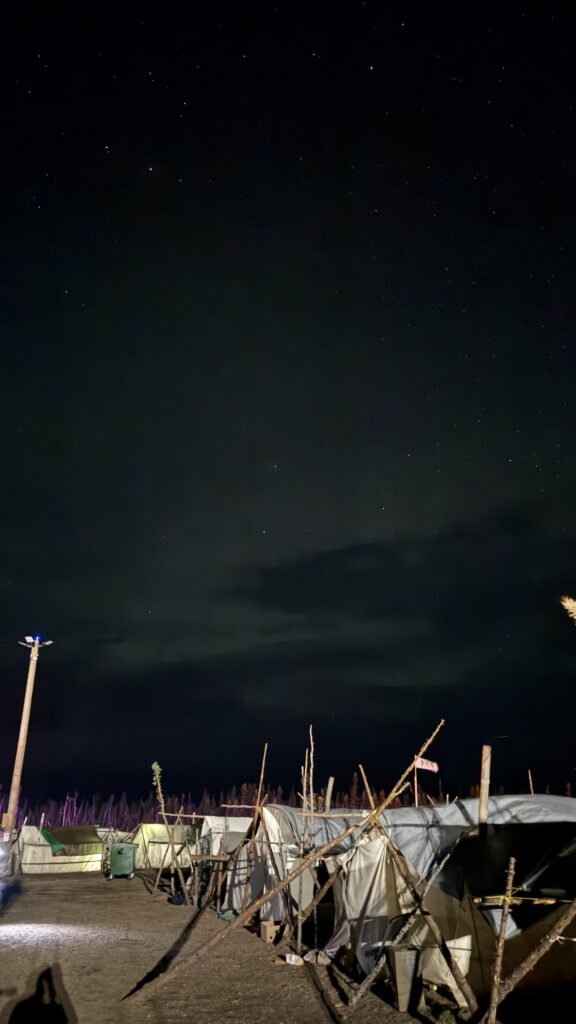
The northern lights were faint tonight, but the stars were incredibly bright. It’s been a cold day, but a good one. I’m grateful to be here.
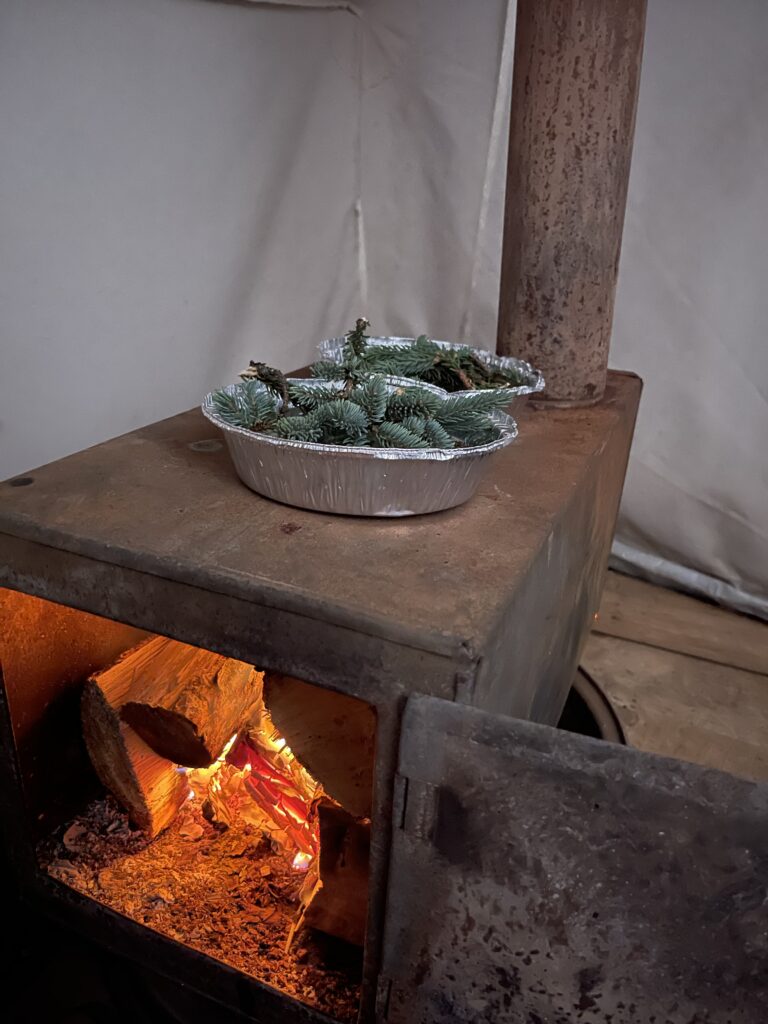
Although my tent doesn’t have spruce boughs, I put some in a pan and set them to boil on my woodstove. The smell is wonderful, and it’s keeping me warm tonight. It’s going to be cold, down to 4°C, but for now, I’m toasty and content.

